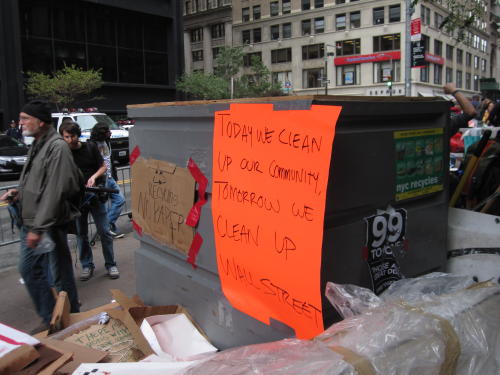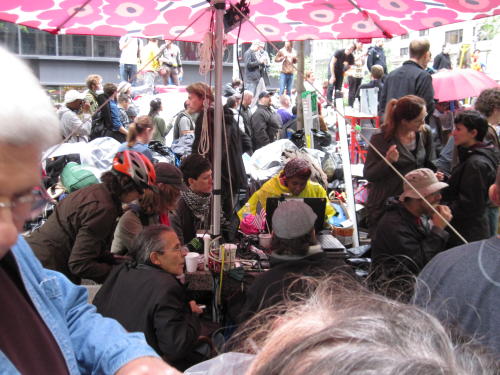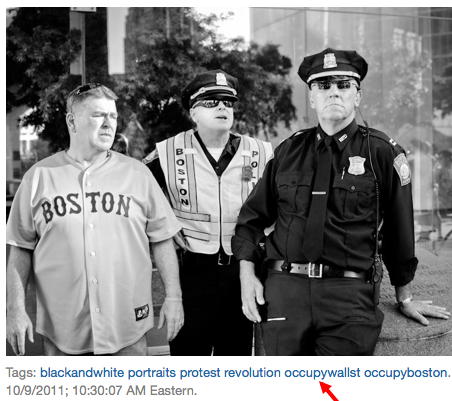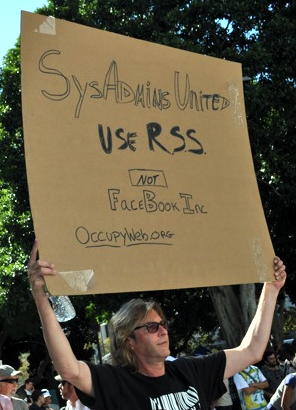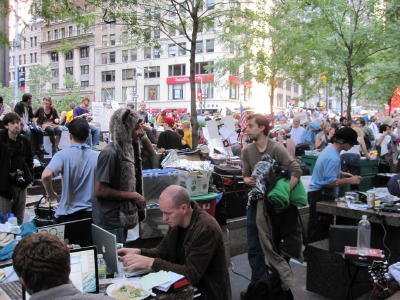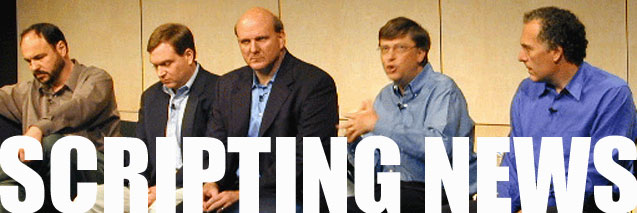
 Why I stand up for Stallman
Why I stand up for Stallman 
 When I was in high school, there was a guy named Sam, who totally didn't fit in. He was awkward, fat, didn't dress well. And it was kind of obvious that he came from a home that wasn't working too well. His clothes were dirty. He was dirty, sometimes didn't smell right, and he did weird things.
When I was in high school, there was a guy named Sam, who totally didn't fit in. He was awkward, fat, didn't dress well. And it was kind of obvious that he came from a home that wasn't working too well. His clothes were dirty. He was dirty, sometimes didn't smell right, and he did weird things.
But it was an advanced high school. You had to take a test to get in, and most people didn't. So that meant that even if Sam was weird, and he really was, he had to have something going for him.
And of course because he was odd, people treated him badly. They teased him as he walked down the hall. During recess he was always by himself except when someone was bothering him. Usually when that happened a group would show up. You could see Sam trying to make friendly eye contact with someone, and always striking out.
I was one of the popular kids. I stayed out of the crowds, but eventually decided to get involved. Me and my best friend Mark would walk with Sam to the subway and talk with him. Yes he was very weird, and he didn't treat us specially. He said all the weird shit he said to everyone to us. I don't think he got how weird it was. But we stuck with him. I don't know if it helped, or how it turned out for Sam.
Anyway, much later in life, I was treated like Sam, in the blogging community. From my point of view, I expected the newcomers to like me, because I had blazed a trail for them, and wasn't asking for anything in return. (Actually I expected them to like me because that's how things had gone all my life. I was generally popular, one of the funny kids, not the target of childish abuse.)
I couldn't believe what was happening. And then people who were probably the kind of people who taunted Sam when we were kids, showed up, and it got a lot worse. It got so bad that I withdrew from the communities I was part of. Some of which I led. The kind of ostracizing that goes on in high school yards is nothing compared to what goes on in web communities. You eventually get out of high school. But if you want to keep building on past work, which is how it goes, you can't really get away from it. Until you can't stand it anymore. And of course the bullies get what they want. It's really galling when these people work for companies like Google, Microsoft and IBM. Because it sure isn't hurting their careers to interfere with, or even shut down my work. I'm not a child, like Sam was. I understand what's going on.
A few years ago I met Richard Stallman, in Berkeley. It was arranged by my friend Sylvia Paull, who was his publicist (she might still be, I'm not sure). It was amazing, because one of his associates there (whose name I don't remember) was teasing me just like people in workgroups on the net were. I looked at him, and asked him if he seriously was going to do this, in front of Stallman. Yeah, he kept at it. That's how pervasive this culture of disrespect is. To Stallman's credit, he not only stopped it, but dug in. He wanted to understand what was at the root of this. I told him I had GPL'd my life's work. And this is the kind of treatment I was getting fairly widely. It wasn't a long conversation, but I could see in his eyes the empathy that Sam had been looking for so many years ago. People think Stallman is oblivious, but my feeling is he's a lot more aware than most people.
Of course at the time I was aware that Stallman gets the same kind of treatment.
I seem to have escaped it, mostly. But I still see it going on for Stallman, and that makes me feel ill. I think a guy like Stallman should be heard and we should think about what he says. And if you disagree, have the self-respect to express it with dignity. And if people start getting personal about it, there should be moderators around to put a stop to it at least stand up to it. No one should stand alone when being subjected to personal attacks.
But here's what really pisses me off. When people say I'm okay because I'm not as bad as Stallman. That is such an awful way to control someone. How am I supposed to respond. Be glad you're not going to treat me like we were in high school and I was the weird guy you can get away with abusing? Or go ahead and say what I think and let you be the asshole you just said you would be if I said something that wasn't from a cookie cutter.
Sometimes, rarely, someone stands up for you -- and it's something you never forget. Once in the middle of a gang-up, Jason Kottke stepped between me and the crowd and said soemthing like this. Didn't Dave do a bunch of good stuff that we're benefitting from? Maybe we should be nicer to him? He was the only one who had the guts to do it (and he just did it once, and it didn't work). Isn't it sad that out of hundreds of people, he was the only one who got that there was a human being in the middle of the circle and didn't want to be in a position to be hurtful to that person? These were adults, not children.
That's why I was so shaken to see Kottke ridicule Stallman on his blog for, of all things, liking parrots! What the fuck. Parrots are great animals. So Stallman likes them. And if you're going to offer him a place to stay, and you have a parrot, don't worry cause Stallman will love you for it. But don't go buying a parrot just to please him, because parrots are complex beings who live long lives, and if you do that, you're going to make the parrot very unhappy. Okay, you say it's weird. And I say weird is good. People who show originality openly, without fear, are people I admire. And people I stand up for.
And I believe in the quality of Kottke's heart. So it's worth saying something.
What Stallman does is what any good blogger would do. He says what he thinks. And if you really listen to what he says, you'll learn something. Probably the biggest thing you'll learn about is your own fear. Because there's something about Stallman that scares a lot of people. They wouldn't try to isolate him so much, if he didn't evoke their fear.
I guess I do the same thing, as did my friend Sam from high school.
Maybe it's time for us to learn how to listen, even if we are scared.
Update: This piece is getting a lot of traffic and the comments have turned ugly, so I turned them off.
 Domains for sale
Domains for sale 
As part of my house-cleaning on GoDaddy, I'm putting some domains up for sale.
Here's the list so far:
 A wifi pocket disk
A wifi pocket disk 
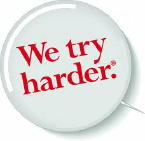 I read an article recently that said that we're seeing more identity theft because people are walking around with unprotected disks in their pockets that can be accessed over wifi. Millions of people are walking around with these pocket wifi disks. And the bad guys, having figured this out, are setting up listening posts, in second floor offices, cabs or just walking around on foot with a computer in knapsack. They make it look like free wifi, and the disk, set up to automatically connect to wifi, starts broadcasting passwords to email accounts, often unprotected, through these wifi endpoints. Which of course are paying close attention.
I read an article recently that said that we're seeing more identity theft because people are walking around with unprotected disks in their pockets that can be accessed over wifi. Millions of people are walking around with these pocket wifi disks. And the bad guys, having figured this out, are setting up listening posts, in second floor offices, cabs or just walking around on foot with a computer in knapsack. They make it look like free wifi, and the disk, set up to automatically connect to wifi, starts broadcasting passwords to email accounts, often unprotected, through these wifi endpoints. Which of course are paying close attention.
These pocket wifi disks are called iPhones. ![]()
And then I read a piece on Fred Wilson's blog, about the new laws being rushed through Congress that would basically give the entertainment industry control over the DNS. I commented that even if they pass the laws, new networks would be quickly established that would allow peer to peer sharing of movies and music. They'd be even more powerful than the ones they replace. Because getting to completely start over is every technology's dream. Having shut off DNS as a way to advertise the presence of pirated content, we'd have to find new ways of doing it. And what we come up with now, forty years later, has to be better. Or else something is wrong with technology. ![]()
Okay so here's an idea of how the new system could work, theoretically.
I love PBS documentaries. So I stay up and record a new episode of Frontline, and put it on my pocket wifi disk and then walk down to Times Square and hang out for an hour or so. Or I just sit in the Starbucks in Grand Central Station. You get the idea. Somewhere where there are enough people to be sure of my wifi signal being seen by other members of the new file sharing network.
Then of course they move around doing their thing, each willing to serve up segments of large video or audio files. Eventually you'd get the full Frontline episode if you wanted it.
It might be fun. And if the MPAA or RIAA wanted to stop it they'd have to hire an army of thought police and deploy them everywhere people congregate. I don't doubt they've thought of doing that, and maybe they will be able to. But in the meantime...
PS: Or maybe instead of pushing around the content, we just exchange pointers to the content. That would more closely resemble a replacement of the DNS.
 Safing-up a Manila site
Safing-up a Manila site 
Manila is an early blogging tool created in the late 90s by a company I started, UserLand Software. I'm hosting a bunch of Manila sites, but to future-safe them, they should be converted to static sites that can be moved to S3. As part of safing-up conventionbloggers.com, there's a Manila site, blog.conventionbloggers.com. I'm glad to have the opportunity to work on this now, because it will help me do the other sites I'm hosting that should be converted to static sites.
On 2/10/10 I wrote a postfilter for Frontier that saves each rendered page to disk.
It's stored in www/staticManila on monster3. This is not currently accessible over the web.
The theory is that over time all the pages that are ever going to be accessed will be accessed, and we'll have a copy of the rendered page as a static file, in the proper place in a static hierarchy that we will be able to move it from Manila to S3.
I now have a blog that needs moving, blog.conventionbloggers.com. And there is a folder there for it. Let's check it out.
It looks pretty good. There are some addresses in the files that need patching. And there are some mysterious domains that work but you wouldn't think they would.
For example, monster2.scripting.com is a long-gone server. But when I retired it I must have made sure that its static files were hosted somewhere, because the links still work. An example.
Also kudos to Bryan Bell, who designed the template on this site. He links to some graphics on redjupiter.com, which must be one of his servers, and it's still up and the links still work. An example. I'm going to patch these so the site will work even if these should go away at some time.
List of host names that have been re-mapped:
http://blog.conventionbloggers.com/
http://conventionbloggers.com/
http://cred.conventionbloggers.com/
http://dem.conventionbloggers.com/
http://images.conventionbloggers.com/
http://rnc.conventionbloggers.com/
http://webcred.conventionbloggers.com/
 Resurrecting conventionbloggers.com
Resurrecting conventionbloggers.com 
![]() The next site I'm bringing back, hopefully, is conventionbloggers.com.
The next site I'm bringing back, hopefully, is conventionbloggers.com.
It started as a blog, then turned into a river of news aggregator. First for the DNC, then the RNC. It was also used to accumulate posts for a blogging conference at Harvard in 2005.
I have been able to get the blog back on line. It is a Manila site. For a long-term archive I'm probably going to have to figure out how to statically render it.
I'll continue posting notes here as the work continues. Sorry if you find this boring or off-topic, but one of the things I wish I had from back then is a similar blog post narrating the work I did. It would help me find all the bits and pieces that make up this site.
Here's an archive.org snapshot of the main site taken in 2006.
And then I found all the static content!
First, I thought I had all the stuff on a local hard disk. Turns out I did. I searched for a bit of text that was on one of the archive pages of the "cred" site. It found it, in about a hundred files. So I just moved my cursor over each of the files and looked at the file paths. One of them looked right. Went to the folder, a backup of all the static files on an ancient server called matrixmonster. There was all the static content I had been looking for, backed up in 2008. Boom!
Now I'm going to make some coffee and think about how I want to transition this content to a more future-safe location and address.
1. I'm going to store all the static content on S3, in a bucket named safe.scripting.com. I'm using scripting.com based on the principle of getting the names to coalesce, so over time there will be fewer fees to pay, and less to maintain. More of it will "just work."
2. Because it's a website, with index files, we have to use a different name to access the content over the web. The long name will be a little inconvenient, even though it works. I've created a CNAME that's a little easier to manage and made S3 jump through the ridiculously designed hoops it has to jump through.
3. Because I want to be able to use this bucket to future-safe other content, I'm going to create a folder within it called conventionbloggers and copy all the content I've found in my backup into that folder.
After getting everything uploaded, which takes a long time on my ridiculously slow Time-Warner cable connection (it's good at downloading, terrible at uploading) I realized that there are a lot of hard-coded URLs in these files that point at the old domains. A redirect will fix them, but not long-term after I let the conventionbloggers.com domain lapse.
To get all the redirections sorted out, first I need to redirect the domains to their paths. Once I have all those done, I can apply those redirections to the source text, and then re-upload later today or tonight.
 Getting Craig Cline back online
Getting Craig Cline back online 
In 2006 a good friend Craig Cline died of ALS. He was very young and it was a terribly sad event.
I volunteered to set up a memorial site for Craig, but at some point I moved servers and the site got disconnected from the name. I think this has happened to a lot of my sites. I'm going to go through them carefully and try to future-safe them best I can.
For example, my father's mbatoolbox site is a Manila site. But in my search for the Craig Cline source text, I stumbled across the OPML for his site. That will fit in much better with what I have going. And my dad loved outliners. So it's more appropriate, I think, to guide his content down through the years in a static OPML boat than in a Manila site.
Anyway, back to Craig's site.
I tried searching for it in Google, and was very depressed to see what came back. Oy. It pointed into some random site which is running on the server that Craig's site used to be hosted on. Not good.
 I realized that a fancy domain name makes sense in the first year or so after someone passes. Then it pays to get the archive into some much larger bundle of static content that makes it more likely to survive over the years. And do a permanent redirect to the longer address, so the search engines pick it up, and get back in synch with the correct content. That way when someone looks up Craig, they aren't told about some random engineering product that just happens to be hosted at the same IP address that my server used to run on. Whew!
I realized that a fancy domain name makes sense in the first year or so after someone passes. Then it pays to get the archive into some much larger bundle of static content that makes it more likely to survive over the years. And do a permanent redirect to the longer address, so the search engines pick it up, and get back in synch with the correct content. That way when someone looks up Craig, they aren't told about some random engineering product that just happens to be hosted at the same IP address that my server used to run on. Whew!
Long-term the domain for the site, craigclinefriends.com, is not going to exist (or it might point to a porn site, be careful). I turned off auto-renew for it on GoDaddy. It'll stick around until 2013 (they had it auto-renewing for two years at a time, and it just renewed in Sept). I figure by then all search engines will have caught on to the permanent redirect.
I'm also trying to reconstruct conventionbloggers.com, which was a river-of-news aggregator for both the Democratic and Republican conventions of 2004. It was probably the only aggregator running for those conventions. Definitely of some historic value. I'm going to do the same thing as I did with Craig's site. When I find it. ![]()
 Who would play Steve Jobs?
Who would play Steve Jobs? 
I knew there would be some interesting answers to the question.
And here they are... (Taken from Twitter responses and comments here.)
The dude from the I'm A Mac commercials. (Justin Long.)
A young James Stewart
Denzel Washington.
Noah Wyle.
Ben Kingsley. (Dressed as Gandhi.)
CNN already asked the question. (Darn!)
Charlie Sheen. (My own first choice.)
Jack Nicholson. (You can't handle the truth.)
Alec Baldwin. (In his Jack Donaghy role.)
Samuel Jackson. (John Travolta?)
Christian Bale.
Jack Benny.
Jack Valenti.
John Malkovich.
John Cusack.
Ewan MacGregor.
Boris Karloff (Is it a vampire movie?)
Justin Timberlake.
Leonardo DiCaprio.
Seth Rogen (as Woz).
Keanu Reeves. (Laurence Fishburne as Woz? Agent Smith as Bill Gates? The Oracle as Jony Ive?)
Ashton Kutcher.
Richard Dreyfus.
Ed Harris.
Tom Hanks.
Patrick Stewart. (With Data as Woz?)
Fake Steve Jobs. (Good one!)
Colin Farrell.
It should be animated, by Pixar. (Good one!)
Larry David.
Bill Gates. (?)
Ralph Fiennes in full-on sociopath mode.
The guy who plays Hitler in all the Youtube videos.
Johnny Depp.
Robert Downey Jr
Jason Statham. (Assuming it's a heist picture.)
Benedict Cumberbatch.
Humphrey Bogart in the Cain Mutiny.
Tom Cruise.
 Why DNS needs an API
Why DNS needs an API 
 I'm trying to talk Hover into implementing a simple DNS API. We have what we need from Amazon, but it's not a good idea to build on a single vendor's system. Having an alternative to swtich to if there's trouble would be good.
I'm trying to talk Hover into implementing a simple DNS API. We have what we need from Amazon, but it's not a good idea to build on a single vendor's system. Having an alternative to swtich to if there's trouble would be good.
So here's how my outlining software uses the DNS API from Amazon. When outliners are used to author web content they often have a huge linkrot problem, because the address of an object is a function of its location in the outline. Move it, and all previous links broke.
But you use an outliner for its ability to reorganize, and it's that very ability that makes it more likely that links will break.
We used to think this was just a tradeoff you had to live with...
But then we hit on the idea of placing a name on a headline, that stays with it as it moves around. And if that name were managed by DNS, we wouldn't even have to write a resolver for the name, DNS would do most of the work for us! Really neat when an ancient bit of technology ends up solving a very modern problem. Love it.
But -- creating a new CNAME is a major distraction!
This is what you have to do to create a new CNAME.
1. Bring the browser to the front.
2. Choose the Domains page of your DNS provider from your Bookmarks menu.
3. Log in if necessary.
4. Choose the domain from your list of domains.
5. Click the link to edit the zone file.
6. Add a new CNAME.
7. Click Submit and wait.
8. Find your way back to doing what you were doing.
That's why we don't use DNS as a way of marking a spot in a web structure.
But what if, instead, there was a button in my outliner that did most of the work.
1. Click the Add Marker button.
2. Enter a name in a dialog.
3. Click OK.
4. Wait a few seconds.
The important thing is that you didn't have to switch contexts, or load up your brain with a whole other lengthy task and then somehow try to regain the context of your work. You're much more likely, in teh first scenario, to avoid it -- too much trouble. In the second, once you understood what it did, it's relatively painless.
The key is to add an API to DNS so the functionality can be integrated into the editing app.
BTW, we only use a very small subset of the Amazon API. One entrypoint is all that's absolutely necessary, one that creates a new CNAME record.
 O'Keefe stings Rosen, Shirky
O'Keefe stings Rosen, Shirky 
A video was posted on YouTube this evening.
Apparently someone posing as a potential student asked to sit in on a Studio 20 class, and Jay said yes. He secretly recorded part of the guest lecture by Clay Shirky who is on the NYU faculty.
I am a visiting scholar there through the end of this semester.
My thoughts: It's okay to go undercover and publish the result if you actually caught someone doing something inappropriate. Based on what I know about journalism classes, and what Clay does (there's only one quote from Jay in the 10-minute video) he did what guest lecturers do, give their opinions on the topics of the day. This kind of stuff goes on in J-schools everywhere, every day, with people of all political persuasions.
O'Keefe implies that Shirky is somehow responsible for what the NY Times publishes. I don't believe that's true, and it's certainly not substantiated by the video, or even directly said. That's fairly disrespectful of the viewer. Either you're making a claim or you aren't. "This is the guy who decides what goes into the NY Times," appears to be what he wants us to think of Shirky. If so, that is clearly not true (which is probably why he doesn't say it).
Who is O'Keefe and what does he do? Why doesn't he appear on camera? What about the person who recorded the video, why don't we see or hear from him or her? We don't even know this person's name or gender. How can we form an opinion of their veracity if we don't even know who they are?
 Climbing shorter ladders
Climbing shorter ladders 
In today's piece about the Jobs book I used a term I'm pretty sure I've never used before on Scripting News. That's pretty amazing, because I've been writing here since 1994, and you'd think I would, by now, have explored all the concepts I use in explaining stuff. But not this one. ![]()
 Let's take a couple of professions and see how many steps there are in the ladder from starting out to reaching the top.
Let's take a couple of professions and see how many steps there are in the ladder from starting out to reaching the top.
1. College professor. You start out by getting a bunch of degrees. If you're like most people you go all the way through a PhD and maybe do some post-doctoral work before you get offered a position as a lecturer, or if you're very good, an assistant professor. Some people stay right there for their whole careers, get tenure, sabbaticals, then retirement. But if you want to get to the top, you have to become a professor. Then win some awards. And if you're a guy who aspires to administration, there are a lot of steps before you get to be President of a highly-regarded university. If, instead, you prefer to be a scholar, then you hope to get a big prize, like the Nobel or Pulitzer or whatever. There's a lot of weeding out, and lot of passing people by, and a lot of places where you can get pushed off the ladder. But if you have tenure, are a Nobel laureate, and at a good university, it's fair to say you have climbed the ladder to the top and can look down on everyone else in academia. (Assuming that's your thing.)
2. Reporter. You almost certainly have to get a college degree, probably from somewhere good. Then you have to start out working at a local paper or news station, get noticed. Get promoted, win an award, then get hired by the NY Times, the Washington Post or the Economist or become an on-air reporter on CNN. But you're still not at the top. You can figure the rest out. All this ladder-climbing makes me tired, just thinking about it.
Now if you were a commercial software developer, born in 1955, as I was, you came of age in the mid-late 70s, and you show up in Silicon Valley. How many steps before you hit the top? Cold call Steve Jobs. If he thinks you have talent, he hires you and you go to work on the Apple II. Or cold call Dan Fylstra and tell him you have a big problem licked, get invited for a meeting and two weeks later sign a deal. Boom. That's it. In 1979, you couldn't get any higher than either of those two positions. There were a few others. You could have met Seymour Rubenstein, Bill Gates, Gary Killdall, maybe Fred Gibbons. Mitch Kapor went down this path, as did the Visicalc guys and the guys who wrote dBASE and WordStar.
That's what I mean when I say we climbed shorter ladders. Some of those people had lots of education, some had none. Most didn't go to school in computer science because in the 70s the field was tiny and brand new.
Not climbing ladders had a downside. You could still fall off, and if you did, without any credentials, you might have a hard time picking yourself back up. I'm sure there are other tradeoffs. But that's the idea I was trying to express.
 Moving from GoDaddy to Hover
Moving from GoDaddy to Hover 
As an experiment I moved four of my domains to hover.com, to see how painless the process is, and frankly to be sure it works, before deciding whether I should move the rest of my godaddy-registered domains.
Neither company has, imho, easy docs showing how to do it. So I thought I should take some notes as I transfer a domain.
How To:
1. Go to the Domains page on Godaddy.
2. Click on the name of the domain you want to move.
3. Click the Send By Email link next to the Authorization Code item. Screen shot.
4. Check your email. You should have received a message containing the authorization code. Leave this panel open in your browser, or copy the authorization code to the clipboard.
5. Go to the Domains page on Hover. Click the Add New button. Then click on Transfer a domain to Hover.
6. From that point the process is self-documenting.
If you have trouble:
1. Be sure the domain is unlocked at GoDaddy.
2. Be sure you have the privacy feature at GoDaddy disabled for this domain.
Sneaky Godaddy (what else is new):
When you get the email from Godaddy acknowledging the transfer request, they say "If you want to proceed with this transfer, you may accept it immediately or do nothing. If you wish to cancel the transfer prior to the auto-complete date, you must decline it before <fiveDaysInFuture>." They give you two different links for killing the transfer, but no links to "accept it immediately."
Luckily this one is not hard to figure out. ![]()
1. Go to the My Account page on Godaddy.
2. Click on the Transfer tab. Screen shot.
3. Click on the name of a domain.
4. Click on the Accept/Decline icon. Screen shot.
The rest is self-explanatory.
 The university's role in innovation
The university's role in innovation 
As part of Harvard's 375th anniversary, the Gazette is writing about the things that happened first there. And I was very pleased to have podcasting be one of the things they wrote about.
I was pleased because it helps me advocate for more of this!
 Harvard's role, embodied by John Palfrey, was to provide an excellent cauldron for brewing something that took a bunch of iterating to make happen. The technical concoction was well-understood very early. But the human element, that was what we had to entice. We know how podcasting will work, now how do we get people to start doing it! Having the ability to call to us the resources we needed, with the power of the Harvard name, was a huge boost.
Harvard's role, embodied by John Palfrey, was to provide an excellent cauldron for brewing something that took a bunch of iterating to make happen. The technical concoction was well-understood very early. But the human element, that was what we had to entice. We know how podcasting will work, now how do we get people to start doing it! Having the ability to call to us the resources we needed, with the power of the Harvard name, was a huge boost.
At the same time, Palfrey deserves a lot of the credit, though he's far too humble to say so (I was glad they put his picture on the article). He was able to marshall the resources of the university for us, to make our meetups (called BloggerCons) possible. Without which, there wouldn't have been podcasting.
This is something I think universities, if they ever knew it, forgot. That they have a unique role to play in the advancement of technology. The flow of students, with their fresh perspectives and hope for the future is just part of it. It's also the ethical standards that, if respected, help guide open technology into a market infested with predators. Podcasting was born in a safe estuary, before having to survive in the competitive market. That it survives today in the same form it was launched in, in 2004, is testimony to the good parenting it got in its early life.
This, if you recall, is how the Internet came to be. It was a non-commercial collaboration among academics. I want to do this again and again, and now that the podcasting bootstrap is documented, I have something to show the people I have to convince to make this happen.
 User-led RSS advocacy
User-led RSS advocacy 
 If you're a regular reader of this blog, take a few moments and read this manifesto by actress Felicia Day about the importance of supporting RSS. She says that some sources are turning off their feeds. I was not aware of this. I subscribe to new feeds all the time, and rarely do I find a source that updates regularly that doesn't have one. I think I'd notice.
If you're a regular reader of this blog, take a few moments and read this manifesto by actress Felicia Day about the importance of supporting RSS. She says that some sources are turning off their feeds. I was not aware of this. I subscribe to new feeds all the time, and rarely do I find a source that updates regularly that doesn't have one. I think I'd notice.
But what's reallly cool about this is that passionate and intelligent advocacy is coming from users. For me, that's new. And very welcome. I've felt like the only person who's willing to stick his neck out of the idea that we could have news flows that were not controlled by the tech industry. I was told that users would never understand why this is important. Well, looks like the people who said that were wrong.
This happens regularly in the tech industry, as I've written about so often. In the early days of a technology, in this case news feeds, users need training wheels on their tools. But a few years later, they understand how it works, and they can see how they're being controlled. Shortly after that they break free of the bonds and a new layer of tech comes online.
If you're a developer, it seems now is a good time to take a fresh look at building networks of news flow that doesn't run exclusively through Google, Twitter or Facebook. There is an architecture possible here, built on formats and protocols we all know well. XML, JSON, HTTP, DNS. All of it lightweight and easily cloned for lots of choice for users.
But at least read Ms Day's screed. ![]()
PS: I never nominate my articles for inclusion on TechMeme. I think that would be untoward. But there's nothing stopping you from doing it. ![]()
 The Jobs book
The Jobs book 
I'm having a tough time reading the Jobs biography by Walter Isaacson.
 The reason is pretty simple, it's personal and painful and repetitive. Like Jobs, I was born in 1955, and up until 1979, there are a lot of parallels in our lives. I dropped out like he did, and did a lot of the same stupid stuff. There may even be some overlap in our personalities. But after 1979, when I moved to California, determined to be a software star, his story and mine overlap a lot. I was an Apple II, Apple III and a Mac developer. I've heard the stories of how wonderful Bill and Andy et al were and I know that a fair amount of of that is bullshit (actually a lot of it). This is one of those stories that is so big, so close to home, so well-rehearsed, so often repeated and over time has become fairly divorced from the realitiy that I lived.
The reason is pretty simple, it's personal and painful and repetitive. Like Jobs, I was born in 1955, and up until 1979, there are a lot of parallels in our lives. I dropped out like he did, and did a lot of the same stupid stuff. There may even be some overlap in our personalities. But after 1979, when I moved to California, determined to be a software star, his story and mine overlap a lot. I was an Apple II, Apple III and a Mac developer. I've heard the stories of how wonderful Bill and Andy et al were and I know that a fair amount of of that is bullshit (actually a lot of it). This is one of those stories that is so big, so close to home, so well-rehearsed, so often repeated and over time has become fairly divorced from the realitiy that I lived.
The early years of Apple were hard years for everyone involved. We were young and stupid, and the world told us we were the super-exceptional people that Jobs apparently believed he was until he died. That's what makes this so hard to read. We weren't that special. It's just that the reporters had no clue how we did what we did, and to them, that made us geniuses. But what were doing is what any good engineer or marketer does. (One thing Isaacson does get right, is that it's the ability to combine tech and the humanities that's where the power is in this business. This is a very powerful and mostly unappreciated idea. A great book could be written about just that idea.)
The ladder we chose to climb was a very short one, unlike the ones the reporters climb. To get to the top meant convincing one or two people we could make a contribution. And there were, at the time, so few people who knew how to create commercial software, that anyone with any skill at all could get employed. That meant there were a fair number of bozos working at Apple, for Steve. Even though he was supposedly such a great judge of character. And some of the people he threw away were actually pretty good, and as humans, deserved better than he gave. Their stories will not be told in such an exalted manner, but they might have made a difference, had Steve not been so Steve.
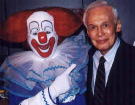 The story about Dan Kottke is a heart-breaker, for example.
The story about Dan Kottke is a heart-breaker, for example.
Also, while Isaacson is a good writer and a good reporter, he doesn't really understand how this stuff works. And you might think that's what it takes to explain it to someone who doesn't understand it, but I don't think so. So much of the Jobs story is how he related to people who actually made the products. If one doesn't understand the substance of those relationships, it's impossible to tell the story, imho. It would be like writing a romance without having ever experienced love.
It's 2011. Surely there are reporters who go deeper into tech than Isaacson. Hopefully his source material is available for other authors to approach writing a biography of Jobs from a different perspective.
I also don't support the author's belief that Jobs' life was strictly a net-plus for the human race. I think he stopped a lot of good things from happening. I once heard, second-hand, Jobs say of a developer who wanted to create software for the NeXT box that "We can't let just anyone develop for this machine." Even if Jobs didn't say those exact words, it's very consistent with the way he expressed himself.
Anyway, the book, for me, is a combination of boring, frustrating and naive -- from my very insider point of view. I may put it down and hope that I live long enough to see those days as worth remembering. At that point I might enjoy reading this book. Right now I have work to do. ![]()
PS: I'm looking forward to the new Stephen King book that's coming out in a couple of weeks.
PPS: On Twitter, the question came up of who would I recommend to write a great Steve Jobs bio. I actually have a few ideas. 1. Robert X. Cringely. 2. Randall Stross. 3. Farhad Manjoo. 4. Ryan Tate. All of them write insightful must-read pieces about tech. Stross has the advantage of having already written a Jobs bio, while he was still at NeXT. It's the best tech book I've ever read. Also, 5. John Siracusa, who writes definitive reviews of Apple products, in some sense is already a Jobs biographer. The best Microsoft book I've read was by 6. David Bank. Great reporting, he really got to the core of what made Bill Gates tick, unlike most of the other books about Microsoft. I might also tap 7. Paul Andrews or 8. Dan Gillmor. There's probably also someone who writes for Tim O'Reilly who would be up to it.
 Escaping from GoDaddy
Escaping from GoDaddy 
 Somehow I got subscribed to a $4.99 per year program on GoDaddy that is impossible to turn off. I seriously suspect that there are actually no commands on their website to turn it off. When I ask their support people to do it, they point to the Terms of Service that apparently gives them the right to continue to charge me for a service that I never used, don't want and have explicitly told them to unsubscribe me from, several times. In writing. They refuse to do it.
Somehow I got subscribed to a $4.99 per year program on GoDaddy that is impossible to turn off. I seriously suspect that there are actually no commands on their website to turn it off. When I ask their support people to do it, they point to the Terms of Service that apparently gives them the right to continue to charge me for a service that I never used, don't want and have explicitly told them to unsubscribe me from, several times. In writing. They refuse to do it.
So it looks like I need to finally cut the cord with them. Unfortunately I have registered a lot of domains with them. I will move them to another serivce and just close the account. It seems that should get rid of the auto-renewing service that I don't want. Yes? I am that foolish. I will spend several days of my life as a matter of principle to get rid of a nasty vendor that has no sense of honor, and is willing to risk an account that pays them several hundred dollars a year for a benefit of $4.99, and the possibility that they get in trouble for stealing money from customers. That should get them in a lot of trouble. Imho.
I'm so sick of companies whose systems screw their customers automatically, always erring in their favor (so forget about it not being intentional). They make it impossibly hard to opt-out and figure you'll just go ahead letting them take the money from your account because it isn't worth your time to actually get rid of them.
PS: If there were a corporate death penalty, I'd vote for GoDaddy getting it. ![]()
PPS: I sent a link to this blog post to the "people" at GoDaddy I'm theoretically emailing with. They never give you a name, and their responses are clearly from a database. So to think I'm conversing with an actual person is wildly optimistic.
PPPS: After I sent a link to this post, they cancelled the subscription. They also apologized "for any inconvenience this might have caused." That's all they'll ever cop to, inconvenience. A more responsible apology would be: Sorry about all the money we took out of your account while you weren't watching.
PPPPS: I wrote a checklist for transferring domains from GoDaddy to Hover.com.
 The RSS community wakes up
The RSS community wakes up 
It was really interesting to read the followup from Brent's post about synchronizing the user interface of RSS reading apps. Comments appeared on a bunch of blogs, and it's a fresh group of people, which is good to see.
To be clear, I have developed a river-of-news RSS reader that's based on the same idea in the original aggregators I wrote, dating back to 1999. Only now the user interface is a jQuery app written by a community of developers who are fluent in this new environment. In my talk yesterday with Anderson of Couchbase, I got a much better idea of the variety of ways jQuery is being used.
 There's absolutely no doubt that the technology Brent was writing about was a blind alley. RSS has always been a great basis for a web app. I don't think it should be a desktop app. Brent illustrates that so clearly. That means there's a tradeoff, offline reading would work differently if you're using a web app for RSS. And that could be handled by the web browser. A simple function that says suck down all the pages linked to from my river and put them in the cache. I'm about to unplug. I don't see how the problem is any more complicated than that. (And I'd be surprised if this doesn't already exist in some browsers, and is on its way for the rest.)
There's absolutely no doubt that the technology Brent was writing about was a blind alley. RSS has always been a great basis for a web app. I don't think it should be a desktop app. Brent illustrates that so clearly. That means there's a tradeoff, offline reading would work differently if you're using a web app for RSS. And that could be handled by the web browser. A simple function that says suck down all the pages linked to from my river and put them in the cache. I'm about to unplug. I don't see how the problem is any more complicated than that. (And I'd be surprised if this doesn't already exist in some browsers, and is on its way for the rest.)
What we do need, however are two very important features that are easily provided, without requiring the creation of any new computer science.
1. A central place to subscribe. This is why Twitter and Facebook beat RSS in simplicity. Because managing your subscriptions is a mess in RSS. To follow someone in Twitter means just clicking a button. It can be that easy in RSS. It just means that the developers have to give up control of the subscription list. Let that be something the user stores elsewhere, that you reference, and can write to, but do not own.
How to develop that? I propose that a university or group of universities develop and run this system. If there's a consensus among developers, I have good contacts now, and can make more. Especially if I can show that there's a consensus among developers to cooperate. This is the kind of project that students can and should work on, imho.
2. Really simple notification. RSS 2.0 provides for notification with the cloud element. I have built on this in my aggregator and content tools. It's the kind of thing that needs to be provided by many vendors. So far WordPress has supported it. We need to do better. To be clear, there are no patents on anything in the RSS 2.0 spec, including this feature.
My goal is to create an open and distributed equivalent of Twitter that runs on lots of people's servers, and give up none of the ease-of-use and maybe just a bit of performance (there are some advantages of centralization). I don't want anything from Google at this time. But I do want to provide incentives to them to support open formats and protocols in a cooperative way in the future. I don't ever want to be in a position where to participate in a community you have to support an undocumented API that's implemented by a single vendor. I'm sure by now we all understand why that is too fragile a foundation to build on.
 A deficit of chutzpah
A deficit of chutzpah 
 When Jerry Garcia died, sixteen years ago, I wrote that when a big tree falls it creates a lot of room for new growth.
When Jerry Garcia died, sixteen years ago, I wrote that when a big tree falls it creates a lot of room for new growth.
So when Steve Jobs died, it created an even larger space, because his existence was much closer in space to my own.
Maybe that's why I now feel entitled to be more bold and daring. Perhaps because there's a deficit of chutzpah in the nearby universe. Reality has become too real. We must fix that! ![]()
Chutzpah is a closer approximation to ego in capturing what makes a product driver good or bad. You have to be daring, tempt the gods. You need a certain amount of hubris to think that you can bring something big and new into the world.
Why not.
It's not as if any of us get out of this alive.
![]()
 Or you could just tell the users to...
Or you could just tell the users to... 
 Brent Simmons explains how RSS synchronization would work if you wanted to use five different RSS-reading apps on different devices. It sounds like a nightmare. I would never ever in a million years attempt to develop this. It's a million times more complex than RSS itself. Bad use of your energies as a developer.
Brent Simmons explains how RSS synchronization would work if you wanted to use five different RSS-reading apps on different devices. It sounds like a nightmare. I would never ever in a million years attempt to develop this. It's a million times more complex than RSS itself. Bad use of your energies as a developer.
Sometimes you just have to say no to users. No, we don't do that. If you want that feature feel free to get X, where X is the name of an app that promises to provide the annoying functionality. Especially when there's such a simple solution to the problem that requires the user basically giving up nothing.
For 10 points, what's the solution? Expand this heading on the story page for the answer.
PS: I had lunch today with Chris Anderson of CouchBase. I bet he'd say you could do a fine job of sychronization with CouchDB.
 Connecting Blogger with Google-Plus
Connecting Blogger with Google-Plus 
 A report on the Google Operating System blog saying that Google is planning to connect Blogger with Google-Plus.
A report on the Google Operating System blog saying that Google is planning to connect Blogger with Google-Plus.
Makes an enormous amount of sense. Google-Plus is basically a blogging platform. And of course Blogger is one of the original blogging platforms.
What's interesting about this, what makes it worthy of a mention on Scripting News, is that Blogger has a fairly complete API, and Google-Plus doesn't have much of one.
There's lots of software out there that supports the Blogger API.
So if they connected the two, if a Blogger post can become a Google-Plus post, then there's now a gateway for content to enter Google-Plus from other environments.
 If Flickr had an ego
If Flickr had an ego 
I got the Steve Jobs book last night on Kindle. I'm reading it on my iPad of course. Great way to read books. Thanks Jeff and Steve.
I wish every product had a spokesperson and ego behind it like the Kindle and iPad do. Take Flickr for example. It's way ahead of all the other Internet photo apps. But its egos, Stewart and Caterina, left years ago. Since then it's drifted on with a little of the momentum they left with it. And even so, it's way ahead of all the other photo apps, as a platform. And that's proving to be really important.
 My photos need an entrypoint onto the net. A gateway. Back in the minicomputer days we used to call this a TIP. I forget what it stands for. But think of the net as a fast and powerful processing and storage unit. And "out there" are billions of nodes that generate stuff you want to move around this big unit in every way possible. They need a way to get onto the net. If your service has the ability to flow stuff out of it, then it can be that spot. For pictures, Flickr is the best.
My photos need an entrypoint onto the net. A gateway. Back in the minicomputer days we used to call this a TIP. I forget what it stands for. But think of the net as a fast and powerful processing and storage unit. And "out there" are billions of nodes that generate stuff you want to move around this big unit in every way possible. They need a way to get onto the net. If your service has the ability to flow stuff out of it, then it can be that spot. For pictures, Flickr is the best.
But there is no ego. It's owned by Yahoo and as we know, Yahoo has been adrift for the better part of a decade. Carol Bartz had no idea about Flickr beyond its use as a photo storage service. She had probably been told it was a platform, and either didn't understand, or wasn't curious to find out what that meant.
Steve Jobs serves as the prime example we have now of a product with an ego. If you look at all the other big products, you can identify an ego that you connect it with. Linus and Linux. Ballmer and Windows, Larry/Sergey and Google. Zuck and Facebook. Drew and Dropbox. Chad/Steve and Youtube. Costolo and Twitter. In previous generations: Bill/Excel, Mitch/Lotus, Dan, Dan and Bob/Visicalc.
They aren't always people you like, actually maybe they're always people you don't like. That isn't what it's about. What matters is does the product know what it is and isn't, and does it act accordingly? Only a product mover like Jobs and Bezos can do that for you.
They're something like the people in Apple's famous commercial (but that's a commercialization). I don't think "changing the world" is the same thing as being the ego of a product. But the former is easier to explain. ![]()
At this point, I wish Flickr had an ego. We could sure use a driving force behind the flow of photos on the net.
See my previous piece about Flickr as a platform.
 I want to support WikiLeaks
I want to support WikiLeaks 
I just heard a segment on the BBC World Service on WNYC about WikiLeaks.
They had a WikiLeaks spokesman explaining how Visa, MasterCard and Paypal had all shut off donations to WikiLeaks. With close to 100 percent market share, that leaves them without a way to raise money in the United States. This was done without due process, without any charges, and has been in place since December last year. A lot of people who look at this situation, myself included, don't see a line separating the role WikiLeaks plays from that played by the New York Times or the Guardian, two news organizations that ask for our respect and presumably don't have any problems with Visa, MasterCard or Paypal.
Then they had a reporter from the Guardian come on and make the usual personal attacks against Julian Assange. The ones that make them look dishonest and sold out, because as reporters, they surely know that they're leaving some salient facts out of their analysis. As the WikiLeaks spokesperson starts to respond, they cut him off and go to the next segment. I could see how someone might think that, based on this reporting, that the BBC is very much in bed with the US government in trying to put WikiLeaks out of business. Probably because they undermine the business model of the BBC, by doing what they do, more honestly and completely. (Should I let the BBC have space to respond? Of course. Because I care about the truth.)
I'm fed up with this situation. There are many ways for people to give money to organizations that many of us don't like. But that's part of living in a democracy. If I want to give $100 to WikiLeaks, and if I want to use my credit card to do so, who are they to say I can't? One might have an argument if there was some recourse, some other way to give money. But they have WikiLeaks blockaded.
Think about this -- if the banks have the power to cut off funding to an organization they don't like, and there's no protest, of course they can do it to you too. And when you think of our nice young President out there pretending to be fighting for us, remember, he's the guy that put them up to this. Could they do it to the New York Times? Of course.
I'd like to see one of the banks break ranks and offer us a way to get money to WikiLeaks with a credit card. Or I'd like to see one of the supposedly reputable news organizations break ranks and tell the story of how the government got the banks and other news organizations to abandon their honor and integrity. And how they don't mind if the part of the public that wants a free press knows they did it. (And to the reporters, how long before they cut you off too?)
To the BBC World Service and the Guardian, shame on you. Especially the Guardian which has repeatedly thrown unjustified mud at Assange and WikiLeaks.
 OWS photographers, please use Flickr
OWS photographers, please use Flickr 
 If you're photographing OWS events, please use a photo service that supports RSS with tagging. This means we can build new apps off their flow. Your photos have a life outside of Flickr.
If you're photographing OWS events, please use a photo service that supports RSS with tagging. This means we can build new apps off their flow. Your photos have a life outside of Flickr.
As far as I know, Flickr has the most complete API of any of the free photo hosting services. (And I know Flickr isn't free above a certain level of use.)
For example, we can tap into their flow of occupyboston photos through this feed.
http://api.flickr.com/services/feeds/photos_public.gne?tags=occupyboston
If you know of another photo-sharing service that has that feature, let me know and I will recommend its use as well and will hook it into the occupyweb.org photo flow. To qualify it must have a URL like the one above, and not require an API key, or any programming beyond accessing an RSS feed.
Note that we are creating an archive of these photos, so there is an incentive to a service to support this. Their photos cannot be part of the archive until they do.
 Links for the origins of podcasting
Links for the origins of podcasting 
My first audio blog post was on June 11, 2004.
Polderbits was the software I used to record it.
Lots of podcasting developments in June, July, August, September, etc.
A year earlier, Chris Lydon's weblog for the ears.
Dan Bricklin's photos from BloggerCon 2003.
The story of Tom Sawyer and the whitewashing of the fence.
 Chinese Politburo calling for Zuck
Chinese Politburo calling for Zuck 
Great articles in China Digital Times and elsewhere about how the Chinese government is nervous about Occupy Wall Street.
That should make us nervous. Let me explain.
1. Most of the coordination of the occupy movement is happening on Facebook.
2. Facebook desperately wants to get into China.
So behind the scenes, imagine the phone calls from China to Facebook headquarters in Silicon Valley.
Operator: Hello this is Facebook.
Caller: Chinese Politburo calling for Mark Zuckerberg.
Zuck picks up right away!
Zuck: Hey guys! Are we still on for the meetup in Hong Kong next week! I ordered a keg for us.
Politburo: Well, we wanted to talk to you about that.
Zuck: Oh come on, let's get Facebook China going. You'll see -- it'll be fun!!
Politburo: Didn't we tell you we won't let you install a tool for revolution in China.
Zuck: I told you I'd take care of it.
Politburo: Then take care of it.
Click.
Later on that day he gets a similar call from David Plouffe at the White House about their plans to run their re-election campaign on Facebook.
All of a sudden Zuck is a lonely boy wonder.
Thinking about how he can get the revolution off his servers.
 Do dead guys always get the last word?
Do dead guys always get the last word? 
1. Steve Jobs is dead.
2. For a dead guy he sure is saying a lot.
3. A lot of it is trash talk! ![]()
In an earlier piece I mentioned iTunes, which started me ranting about it. As a user, it's one of the least intutive pieces of software I've ever used. You pay dearly for every bit of knowledge you gain. And then they go and change the UI, and you have to find it all over again. To make it even worse, and hide the functionality behind bugs so you can never figure out what to do when you have two minutes before you have to leave and the thing you need isn't on your iPad.
Whew.
So Steve is out there trash talking everyone else, Google, Microsoft, Obama, come to mind, even though the guy just died two weeks ago.
Does that mean the respect-the-dead period is over?
If only Steve was a blogger who spoke his mind when he was alive, we could have fixed some shit! Oh well.
Here's what I would say to him: Steve, iTunes is some shitty software. How about getting with it and straighten some of its shit out.
Oh yeah and thanks for listening. ![]()
 What's going on with Google Reader?
What's going on with Google Reader? 
 I don't follow Google Reader. Basically I think it's great that there's an RSS tool that people like so much. But it's scary, because so much of RSS use is in that one app.
I don't follow Google Reader. Basically I think it's great that there's an RSS tool that people like so much. But it's scary, because so much of RSS use is in that one app.
Google seems to have the power to either seriously injure RSS, or perhaps set it free. Not sure which would happen if they radically changed course. I just know that users have made the other RSS reading tools be dependent on it. And that's not a great way to do things. What makes RSS useful is its power to de-centralize. To re-centralize it for a little convenience is to miss out on the variety that's possible if you're willing to suffer a bit. Software is full of tradeoffs. ![]()
Anyway, I've been hearing little snippets of conversation here and there that things have changed, or are going to change, in Google ReaderLand? I don't know. So if you don't mind -- could you all tell me the story. What just happened? What are your thoughts?
Perhaps now we can start working on a variety of tools from independent developers that don't depend on a central mother ship to coordinate. That's really taking too big a risk with something as important as RSS.
So I'm all ears. Tell me what happened, please. ![]()
PS: As Google Reader is to news, iTunes is to podcasting. Major dependence there, for a lot of users. Not good, imho.
PPS: Please don't tell me how futile it is to use RSS independent of Google and Apple. I do it, and I think I have a better system than you do. Not only do I refuse to be dependent on those companies, I've done something about it.
 Connecting RSS and Occupy
Connecting RSS and Occupy 
 We had a wonderful symposium yesterday on the steps of Angel Orensanz as part of ContactCon. We were tasked by Douglas Rushkoff to do something substantial, and we did.
We had a wonderful symposium yesterday on the steps of Angel Orensanz as part of ContactCon. We were tasked by Douglas Rushkoff to do something substantial, and we did.
Occupy is a moon mission. A moment in time when all things are possible. When things that have been on my to-do list for decades -- get done.
It's true that RSS has laid latent for years. The tech industry doesn't love it. Why they don't is one of the symptoms of how tech is valued. It has nothing to do with the design of RSS (though they often say it does).
The problem for the tech industry corporations is that RSS disempowers them. It makes them commodities. And if that's what they are, they can't command a premium in the stock market.
The value of tech companies is a function of how much they control what users see. The more control the more value. Companies like Apple, Google, Facebook and Twitter are turning this into an art. Apple, through their stores. Google through search. Facebook and Twitter through their timelines. This isn't wild politics, it's the dream that Internet users are eventually going to come awake from.
An aside: It's funny that people are aware of the privacy invasions of Facebook, but they don't see the other side of it -- how Facebook controls what you see.
 What you see is what they want you to see. (Almost sounds Buddhist doesn't it, but it's actually a simple economics statement.) RSS counteracts that. It gives the power to determine what you see to the people you choose. By having multiple sources of input you can triangulate. Figure out for yourself what the truth is. Whether they tell you so or not, each of the corporate media companies agree to certain things that they won't report at all. The Occupy movement has had a front-row seat for this, while demonstrations with thousands of people go unreported by the media. So do you think Facebook plays fair with showing your updates to other users? We don't know their algorithms. And every peek we've had into this confirms the belief that we're really just spinning wheels for their profit.
What you see is what they want you to see. (Almost sounds Buddhist doesn't it, but it's actually a simple economics statement.) RSS counteracts that. It gives the power to determine what you see to the people you choose. By having multiple sources of input you can triangulate. Figure out for yourself what the truth is. Whether they tell you so or not, each of the corporate media companies agree to certain things that they won't report at all. The Occupy movement has had a front-row seat for this, while demonstrations with thousands of people go unreported by the media. So do you think Facebook plays fair with showing your updates to other users? We don't know their algorithms. And every peek we've had into this confirms the belief that we're really just spinning wheels for their profit.
But...
If all the data on the Internet flows in a format that everyone understands, there are no limits to what can be built with it.
This is how new layers come into tech. I saw it happen when PCs came along and gave power over data to users. Graphic UIs made it possible for non-technical people to use them. The web opened up the data again. That pesky tech industry keeps establishing their control, only to have it taken away from them. We're there, again. I believe.
And btw, this is of course not bad news for the tech industry. Every time their lock-in gets busted, the industry grows by an order of magnitude.
PS: The reporters probably will say that I push RSS because it's part of some get-rich-quick scheme. For who, I don't know. I wanted to start businesses around RSS, but my products just spawned an industry and didn't make me any money. Nowadays all my software is open source. So if someone throws that particular kind of mud, ask them to back it up. Maybe I'm missing an opportunity to make a lot of money! ![]()
PPS: The professional reporters didn't like that bloggers gained access to the DNC in 2004 (I was one of them) so they made fun of us. That's what resistence to change looks like. On the other hand, some saw the change as inevitable.
 OccupyWallStreet a new Napster?
OccupyWallStreet a new Napster? 
 It would be interesting to talk to some people who were music industry execs in they heyday of Napster to see if they have any regrets about breaking it. Some of us at the time said that they should legitimize it, clean it up, upgrade it, and charge for access to high resolution versions of the music while letting out low-rez scans for free. It would have been a blow to their egos, to be dragged into a new market by users. But I argued that for the first time in a very long time, people were truly excited about music. People were talking about Napster in supermarkets, on airplanes, at dinner parties. Why? Because for the first time they could program their own music. This turns out to have been a very powerful thing. We were just getting our first taste of it back in 2000.
It would be interesting to talk to some people who were music industry execs in they heyday of Napster to see if they have any regrets about breaking it. Some of us at the time said that they should legitimize it, clean it up, upgrade it, and charge for access to high resolution versions of the music while letting out low-rez scans for free. It would have been a blow to their egos, to be dragged into a new market by users. But I argued that for the first time in a very long time, people were truly excited about music. People were talking about Napster in supermarkets, on airplanes, at dinner parties. Why? Because for the first time they could program their own music. This turns out to have been a very powerful thing. We were just getting our first taste of it back in 2000.
There are a lot of parallels between the excitement of Napster in 2000, and the excitement today around OccupyWallStreet. For the first time in a long time we're talking about politics without complete resignation. We have some sense that we may be able to get something done. And of course the politicians, as were the music execs, are offended. Why? Because this wasn't their idea? Because the people are leading? Because they don't know where it will lead? Most likely: Because it breaks all the patterns in politics they've become accustomed to.
In 2000, all the music and all the users were in a single tent. It would have been easy to build the music distribution system of the future. A handful of programmers in Silicon Valley had done just that. Users were happy to live with the limits of Napster as long as they could program their own music.
If the parallels are real, then the city management of Denver just blew it. Do they think for a minute that by shutting down OccupyDenver, in a way that's so humiliating to the people who were brave enough to break the rules, that they're going to stop the movement? It's pretty doubtful. They just forced it out of sight. Instead, imagine if they had worked with them, to help them build their political movement, not knowing where it was going, but taking a chance that it might break us out of the mediocrity that we've become mired in. Instead of standing in the way, not only get out of the way, but try to help out. See if there isn't a way for everyone to get what they want.
 OccupyWeb photo archive
OccupyWeb photo archive 
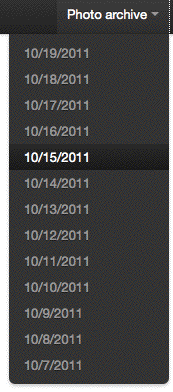 Even though the photos on occupyweb.org scroll by quickly, the app behind the website has been keeping an archive of the photos. I was hoping to find the time to write the code to archive them in a browsable way. Now I've got that working.
Even though the photos on occupyweb.org scroll by quickly, the app behind the website has been keeping an archive of the photos. I was hoping to find the time to write the code to archive them in a browsable way. Now I've got that working.
Here's how to get to the archive...
You'll see in the upper-right corner of the home page, there's now a dropdown menu. In the menu, in reverse-chronologic order, is a list of the days we have archived. There's a screen shot of the menu to the right.
The pages are fairly huge, some with as many as 1500 pictures. All of them are linked to the Flickr page, so you can find the photographer, and see what the licensing terms are. Or leave a comment.
Why look through the archive? The pictures are great, and they document something that's pretty amazing, over wide distances, which would not be possible without the Internet. And you can see the creativity of the people who are protesting and the photographers who are recording the events. There's some wonderful art and history in these pictures. May be worth spending some time with. I plan to, myself. ![]()
 Money
Money 
Some people say we should take our money out of the big banks.
This is part of a larger discussion about the lives we live, and the scale of the human species. It's the largest discussion we can have as long as we limit ourselves to our presence on this planet.
I tried, when my bank refused to let money flow to Wikileaks, to move from it to another bank. But the new bank was just as bad. Money is defined in terms of those big banks. If you want to break that bond, there are a lot of other bonds you have to break. And when you're done breaking things, you're going to find that the planet can only support a fraction of the human life it now supports. And there will be a lot more sickness, and less cool stuff to read and watch and listen to. You can't just yank the plug on civilization and still have civilization.
We have been here before. The hippies wanted to live off the land. My hippie uncle even did it. He bought some land in a what was then a rural part of Florida and built a geodesic house with no electricity or phone. A bunch of his friends came to live there from New York and Pittsburgh. I went to visit many times, and it was nice. But I always went home to places where I had the full support of modernity.
I couldn't, at this stage of my life, choose a different path. And if I were his age, when he decided to live that way, I wouldn't do it, knowing what I now know.
 Getting back to money. I hear people say we should return to the gold standard, as if gold was some objective form of value. It's no more objective than the money system we have now. If you poke at the reality of money, go through the suspension of disbelief that we all accept its value without understanding where it comes from, you'll realize that it has no value so its value comes from nowhere. Same with gold, same with anything you choose as your "objective" instrument of value. But look at all the substantial real stuff the myth of the value of money has created. That's why the Ron Paul advocates are so totally wrong about the nirvana they imagine. They should think about it this way. Suppose you win, and everyone says OK, let's do it your way. What's the first thing you'd do, and the second and third. Where are we all going to live? What about the money in our bank accounts right now? What will we do with that? How do you turn the clock back to the time we were running on the gold standard? All those people are dead now, so their money doesn't matter, right? And all of our current money is "fiat" money -- yes? So what now?
Getting back to money. I hear people say we should return to the gold standard, as if gold was some objective form of value. It's no more objective than the money system we have now. If you poke at the reality of money, go through the suspension of disbelief that we all accept its value without understanding where it comes from, you'll realize that it has no value so its value comes from nowhere. Same with gold, same with anything you choose as your "objective" instrument of value. But look at all the substantial real stuff the myth of the value of money has created. That's why the Ron Paul advocates are so totally wrong about the nirvana they imagine. They should think about it this way. Suppose you win, and everyone says OK, let's do it your way. What's the first thing you'd do, and the second and third. Where are we all going to live? What about the money in our bank accounts right now? What will we do with that? How do you turn the clock back to the time we were running on the gold standard? All those people are dead now, so their money doesn't matter, right? And all of our current money is "fiat" money -- yes? So what now?
Like it or not, we are dependent on all these things we don't like to keep us alive. There's less room for originality than you were told there was. This is a lie we all come to grips with. When I was young, we marched in the streets because we were so unhappy with the world that was left to us. But ultimately we realized that if we shook it until it broke, we would have nothing left. We have to shake it, for sure -- but we have to keep the old system working while we boot up a new one.
I love the example of the Bay Bridge in San Francisco. A decision was made in the 1990s to replace half the bridge, and rebuild the other half. And all this had to be done while the bridge, which is core to the flow of life in the Bay Area, continued to function. The human species is good at this kind of evolution. And when all is said and done, there will be a new bridge where the old one stood, and the people who travel over it will not remember that there was another bridge here, or care.
 Occupy Election Day, part 2
Occupy Election Day, part 2 
On Sunday I wrote a piece called Occupy Election Day.
The original title of the piece was "Fanning out into neighborhoods."
I thought the new title was more to the point.
An interesting discussion took place in the comments. The same discussion that happens when I bring the idea up on Twitter. People argue that nothing can change in the political process of the United States, or that change is slow and can't happen now. There are lots of ways of expressing this idea. If it's correct, all hope is lost. Because that's the only mechanism for change we have in this country that has a chance of working.
 But things are changing. Already. Because a few hundred people occupy a small piece of lower Manhattan. Paul Krugman noted the same thing in a panel discussion on CNN on Sunday. There were two Republicans and two Democrats. Krugman was one of the Dems. Steve Forbes was one of the Repubs. Krugman pointed out that the Republican themes, which are crazy wrong Depression-inducing ideas, were dominating the whole discussion before OWS came along. Now the topic has shifted, in a productive direction. I agree with Krugman. And I think we should continue in this direction. Of shifting the focus of political discourse. That matters much more than who gets elected in this year's election (to be clear, there is an election on November 8 of this year).
But things are changing. Already. Because a few hundred people occupy a small piece of lower Manhattan. Paul Krugman noted the same thing in a panel discussion on CNN on Sunday. There were two Republicans and two Democrats. Krugman was one of the Dems. Steve Forbes was one of the Repubs. Krugman pointed out that the Republican themes, which are crazy wrong Depression-inducing ideas, were dominating the whole discussion before OWS came along. Now the topic has shifted, in a productive direction. I agree with Krugman. And I think we should continue in this direction. Of shifting the focus of political discourse. That matters much more than who gets elected in this year's election (to be clear, there is an election on November 8 of this year).
Politicians are inkblot-readers. If the inkblot says what they've been doing is wrong, they will change what they're doing. They're much more responsive than you give them credit for.
So, if we were to push the needle just a teeny bit in one direction, any direction, in the 2011 elections, that would set the stage for massive change. If you want power, you have to stop thinking so linearly. Showing power is as good as having power.
So let's find a contest, perhaps in Pennsylvania, Wisconsin, Florida, New Hampshire, Iowa, Nevada, California -- I'm just naming states at random, and influence the election. Not only through marches and occupations, but through door to door canvassing of voters. For the few days remaining between now and November 8, just getting out the vote would be enough of a demo of political power to make a difference. And then let's start planning for Election Day 2012.
This is what money does in politics. If we can substitute people for money, all of a sudden the money matters a lot less.
That's the idea.
PS: Barney Frank is on the same page. He wants to know where we all were for the mid-term elections. We really screwed that one up. But there's still time to fix things.
 Time-Warner Internet
Time-Warner Internet 
Yesterday was moving day, I'm now occupying uptown.
And after a little fussing with the Airport router, I have Internet acces (and cable TV). So I will be able to watch tonight's debate, and comment on it on my blog and elsewhere. That's the good news.
Now for the not-so-good news...
I am now a former FIOS user. I think I'm going to be sad. (But at least the new connection is working.)
It's Time-Warner. Great download bandwidth. Unbelievable bad upload bandwidth. Pathetic.
![]()
Maybe it's time to occupy Time-Warner. ![]()
 Occupying uptown
Occupying uptown 
Today was moving day. I had been at my East Village apartment for a year. And while I loved the village, having lived in the West Village for eight months before moving east, I've always wanted to live at elevation. Since there are no mountains in NYC, that meant finding a high-rise, and for that you go uptown. I think maybe it's because the bedrock is better up here. Or maybe they didn't get around to building uptown until the skyscraper concept was perfected. Not sure. But if you look at the skyline, you'll see there's a cluster of very tall buildings downtown, then a big gap where all there is is the Empire State Building, and then from the 40s to the 90s it's a huge block of very tall buildings. I'm in one of them! ![]()
The other reason I wanted to be uptown is so that I could cycle in the park. Living downtown and especially on the east side, meant that 20 minutes of every daily ride was spent getting to and from the bike trail. And that meant riding in city traffic. I am getting proficient at it, but I am a total novice compared to some of the delivery guys. But now at least they mock me. Until recently I didn't even rate a mention. I've come a long way in my city riding skills. New York riding toughens you up. But I'm still an amateur in awe of the pros. And when I'm not riding I worry. I tell myself this time you're not going to shave a few seconds off the red light, and then I proceed to do it anyway. Or I won't ride in the wrong direction on Fourth Avenue when the lights are going the other way, but don't you know I do that too.
Now my ride will begin in the park and end in the park, with just a very small number of city blocks inbetween. And in the winter, which hopefully at some time we will see here in NY (it's still very warm) I can walk in the park. And get lunch at Zabar's. And who knows what else there is to do.
One thing I notice right off the top. It's a lot quieter here. The East Village was a teeny bit more sane, noise-wise than the West Village. But you really couldn't sleep with the windows open. And forget about getting through the night from Thursday through Saturday. I actually got used to waking up at around 2AM and not getting to sleep till almost dawn while the drunks had their party on the streets below. Now there might be drunks on the street, but I doubt if I will hear them. They're too far away!
I'm also within easy walking distance from a transportation hub, the Columbus Circle subway station. From there, you can get pretty much anywhere with one change. Even the East Side. And it's just a few blocks to get to the famous Fifth Avenue Apple Store. What else could a nice geek hope for?
One more thing, that's likely to be very bad for me (so I'll do it in moderation). The Carnegie Deli actually delivers to the new place. Just had half a pastrami on rye. So big I could only eat half. But what a pastrami! Mama mia! (Translated: Oy gevilt!)
 Occupy Election Day
Occupy Election Day 
Election Day is November 8.
22 days from now.
Perhaps now is a good time to practice getting people to the polls over all the obstacles governors and state legislatures have put in their way.
Mike Huckabee said yesterday: "Just make sure that they don't go vote. Let the air out of their tires on election day. Tell them the election has been moved to a different date. That's up to you how you creatively get the job done."
I guess he thought that was funny. I don't. I think the vote is sacred. I don't care who you vote for, but the thought that one American would even think to deprive another American of their vote, is well un-American, in the extreme.
Helping people get to vote is a very powerful way to flex political muscles in a totally legal way. And prove that there is no specific agenda for the #OWS movement. Help all kinds of voters get to the polls. If a member of the ruling class needs help, we'll help. Anyone means anyone.
There's a pulse to this thing. I get that now. We have a really big election coming up in 2012, but the one this November is important too.

 City center occupation
City center occupation 
Will the occupation in the center of all cities be like the shopping malls of suburbia, except instead of shopping for makeup or sneakers, you'll shop for new politics?
New businesses will sprout up with services for people spending the night at the occupation. You could already see this at Zuccotti. The portable food vendors are there. You can get a nice lamb over rice. What other services will pop up? (Porta-potty vending? Meeting centers?)
What other services will pop up?
Porta-potty vending? Meeting centers?
And maybe special facilities for General Assemblies.
Is there any science fiction that anticipates occupations?
 "Don't trust anyone over 30"
"Don't trust anyone over 30" 
When I was a kid, and definitely under 30, the hippies had a slogan that you shouldn't trust anyone over 30. This was called the generation gap. Maybe some historian or sociologist can explain it. I just remember people saying it and not understanding.
I could think of specific people over 30 that you coudn't trust. People I had seen betray young people because they were young and couldn't defend themselves. When you're a kid you're tuned into this. I guess the question is what do you plan to do about it when you become an adult. Will you be better, or will you seek revenge? Or just forget about it.
And here we are again.
I've been watching the Occupy Wall Street movement. I've even developed tools that make it possible to watch it more closely, and I do see a little bit of this kind of thinking. I'm concerned how solid the line is, and if there's an opportunity for resolution.
What it sounds like. We're the 99 percent and they're the 1 percent. We're angry with what the 1 percent has been doing. If it stopped there, it would be okay, but it might not stop there.
But first, let's take a look at what they're reacting to.
Here's a quote from a NY Times article with interviews with Wall Street bankers about the OWS movement.
He added that he was disappointed that members of Congress from New York, especially Senator Charles E. Schumer and Senator Kirsten Gillibrand, had not come out swinging for an industry that donates heavily to their campaigns. 'They need to understand who their constituency is,' he said.
Breath-taking. That person needs to be revolted against. Seriously. (And the article has lots of quotes like that, this one is just the most egregious.)
But does that mean that all people who are in the top 1 percent think like that? Obviously, not. And in the 60s there were people over 30 who marched with the kids. Many problems with blanket statements like "Don't trust anyone over 30." Unfair. And they also make victory impossible. To get resolution you have to make it so that being over 30 isn't a problem for those under 30. And that 1 percenters don't make it impossible for the 99 percent to have good lives.
What if, instead, a collection of 1-percenters said: "We hear you. We understand that the political system has been perverted by money. The evidence is everywhere. We need reform. Can we put our minds together and try to come up with a way out of this mess?"
If that happened would there be a way to proceed?
I find it's always a good idea to try to visualize the conclusion of your campaign. What would victory look like? And if you get close would you be willing to compromise? These are good questions to ask when a conflict is young, because later there will be too many wounds to just declare peace and get on with it.
PS: Highly recommend reading Fred Wilson's piece, also posted today, about the visit we took to Zuccotti Park on Thursday.
PPS: Also highly recommended, Mark Cuban has several specific ideas that sound right on to me.
 Flow of pics from Times Square?
Flow of pics from Times Square? 
I'm looking for a feed of pics from Times Square to flow through occupyweb.org.
I found a bunch of them on Twitpic, but they don't seem to have feeds.
I have everything all set up for Flickr, now looking for ones with tag 15OCT.
 Tapping into the "occupy" news flow
Tapping into the "occupy" news flow 
As you may know, we have a river of news for some of the occupations around the world. The goal is to complete the list and keep it current. So, as new cities come on, their feeds show up in the list, and we're showing their news on the news page.
Of course all this data is open and available to other developers to build on.
 Here are the two key bits:
Here are the two key bits:
1. The OPML subscription list. You can import this into any news reader that supports OPML, which should be all of them. It's the standard way of exchanging subscription lists. If your reader does not support dynamic lists, you'll have to re-import it from time to time, as the list grows.
2. The JSON news flow. This is the aggregated news flow in JSON format. It's what the River page displays. Poll it at most once every ten minutes, that's how often it's updated. At the top of each hour and 10, 20, 30, 40 and 50 minutes into each hour. I think the format is fairly self-explanatory.
Both of these files are hosted on S3 so they should be able to handle some traffic. ![]()
 I shouldn't have worried about the kids
I shouldn't have worried about the kids 
When I first went down to Zuccotti last Saturday I left with an uneasy feeling about how it would end. I imagined that eventually the police would move in and clear it out. The kids would go home, dejected, defeated. And then where would we be. I want to see something honest and righteous build, not be so easily knocked down. This thing looked easy to knock down.
And last night it looked like it would end this morning. I didn't imagine what would actually happen, that the police would back down. I think they played it out and realized the situation was more complex than it looked at first. Then I figured it out myself...
 I remembered a post by John Robb, which seemed to contain a brilliant insight. Something I hadn't thought of. I used to work with John at UserLand quite a few years ago. He's a smart dude, in an ex-Special Ops spookish kind of of way. He said there were three recourses for the protestors if Bloomberg's army invaded:
I remembered a post by John Robb, which seemed to contain a brilliant insight. Something I hadn't thought of. I used to work with John at UserLand quite a few years ago. He's a smart dude, in an ex-Special Ops spookish kind of of way. He said there were three recourses for the protestors if Bloomberg's army invaded:
1. Make Bloomberg own it.
2. Disrupt Manhattan.
3. Make sure the world can watch.
Now, 1 and 3 were obvious to me. I think in those terms. But I'm chickenshit when it comes to confronting cops -- people with guns and big sticks and mace, and the power to put us in jail. So my mind tends not to go there.
But man, if that isn't exactly what the occupiers did when Bloomberg backed down. Even if the plan wasn't written down somewhere, there were enough people in a place where you could easily disrupt a whole business day in Manhattan. They just marched around City Hall and down Wall Street. But they could have done much more.
Think about where they are. The Brooklyn Bridge is just a few blocks away. In the other direction, West St is a major north-south artery, also just a couple of blocks away. And on the east side there's FDR Drive. A couple of blocks south is the Brooklyn Battery Tunnel. And there's a subway entrance on every corner down there. A few thousand people could freeze a million. And it's pretty clear Bloomberg didn't even think of this when he planned the takedown on a weekday morning just as rush hour was starting.
Like I said, this isn't the kind of stuff I think of. I don't think in terms of civil disobedience. I'm more of a press person. I think in terms of telling the story.
But it's obviously a good deal to let them have Liberty Park. And probably any other park they want. The reason? Their grievance is real and it's fair, and as the idea spreads people are going to figure out that they agree. Strongly. The people might not mind if work in Manhattan stops for a day. Just to make the point that things have to change, now.
 What's amazing is that more politicians haven't figured out yet that this is a tide that's turning. The parade they want to try to get in front of. What's also amazing is that they didn't realize there was a limit to how far they could push before people would go to the streets. We didn't dream what happened in August when the Republicans almost pushed us to default, and the Democrats couldn't say a thing about it. They ended up voting for the ransom the Republicans demanded. Isn't that just plain amazing. We would never let them do it now. That's even more amazing.
What's amazing is that more politicians haven't figured out yet that this is a tide that's turning. The parade they want to try to get in front of. What's also amazing is that they didn't realize there was a limit to how far they could push before people would go to the streets. We didn't dream what happened in August when the Republicans almost pushed us to default, and the Democrats couldn't say a thing about it. They ended up voting for the ransom the Republicans demanded. Isn't that just plain amazing. We would never let them do it now. That's even more amazing.
It won't be much longer before the Tea Party people figure this out and start occupying too.
Think about it.
In the 60s one of our mottos was Power To The People. Of course we've always had the power. It was just sitting there waiting to be used.
 Summer rainstorm in October
Summer rainstorm in October 
I've been writing and programming writing and programming all day. It had been four days since my last ride. I said Dave you know what you need. I don't know Dave, do tell. Dave you need a ride.
I went out even though the sky was menacing. Got as far as the 50s and I said to myself Dave, you know what -- looks like rain. Okay I think you're right. Let's turn around. So we did. And then the sky opened. Boom.
So I waited around at 46th St under an awning and watched the rain. Finally it stopped. Got back on my bike, but by the time I was at the 34th St heliport it was pouring again. No shelter. Okay I got soaked. But I'm home now.
That's the story of my summer rainstorm in October.
Map: 52 minutes, 9.2 miles.
 If I were...
If I were... 
 If I were Michael Bloomberg, a very smart and wise man, I would take a deep breath and spend one day this weekend trying to learn what Occupy Wall Street is about, from the point of view of an average New Yorker. He's so smart he will get it. The problem is his perspective. He's one of the few people who they are angry with, and rightfully so. When the light goes on for him, he will be able to explain it to others in his class. Whether they listen or not is their problem. But it's up to him, as the elected leader of all New Yorkers, to listen and understand, and make wise choices.
If I were Michael Bloomberg, a very smart and wise man, I would take a deep breath and spend one day this weekend trying to learn what Occupy Wall Street is about, from the point of view of an average New Yorker. He's so smart he will get it. The problem is his perspective. He's one of the few people who they are angry with, and rightfully so. When the light goes on for him, he will be able to explain it to others in his class. Whether they listen or not is their problem. But it's up to him, as the elected leader of all New Yorkers, to listen and understand, and make wise choices.
If I were Apple, I would quickly find a product in the pipe to release that's new and interesting and get us Apple devotees who already have one of everything to buy this new thing. We need a post-Steve experience to remind us of Apple's ability to get the money out of our pockets.
Also, if I were Apple, I'd re-run some of the his most brilliant commercials. The funny ones. The stylish ones. The crazy ones. Let us remember how inspired we were by Apple's mission. We can be inspired again. And remember that they weren't hollow promises, they actually delivered.
If I were one of my friends on Twitter who is at the exclusive elite invite-only Shorenstein conference celebrating Shorenstein, I would not tweet about it. If I were at Davos earlier this year I would not tweet about it. In fact if I were invited to an exclusive elite invite-only conference I would not tweet about it at all, to anyone. Twitter is unique in that it lets everyone in. The rabble. The non-elite. Could be the season, or the politics, or the fact that people are camping out in lower Manhattan for freedom. The contrast is not flattering. Imho. (And I know this will piss some people off, so be it.)
Update: The conference at Shorenstein was not invite-only. It was and is open to the public. I feel very foolish. Apologies for the mistake.
That's all I have in If I were's for right now. ![]()
One more: If I were a rich man I'd buy Kyle Shank lunch at T-Rex.
 River2 1.0
River2 1.0 
I'm not going to make a huge deal about this, but River2, my river-of-news aggregator, turned 1.0 yesterday.
To celebrate, I also did a new release of the OPML Editor, the environment that River2 runs in.
So if you've wanted to operate your own river-of-news, now's a good time to start.
Examples of rivers: 1, 2, 3, 4.
 Who would find this interesting: news organizations and journalism schools. Operating a river is a way to automate news gathering in your sphere of interest, your community. And for J-schools, it's a way to give your students a head start on the news system of the future, which will surely operate in this fashion. Imho of course.
Who would find this interesting: news organizations and journalism schools. Operating a river is a way to automate news gathering in your sphere of interest, your community. And for J-schools, it's a way to give your students a head start on the news system of the future, which will surely operate in this fashion. Imho of course.
I would love to get feedback from any news org or J-school that started doing rivers with this software. ![]()
It's available for Mac and Windows. The Mac version is a universal binary, no more need to run Rosetta. The Windows version runs nicely in EC2 for Poets, which means you can operate a river in the cloud if you want.
EC2 for Poets also got a refresh a few weeks ago, so it's current and tested, and works nicely.
Support is available on the River2 mail list.
If you're an old-time Frontier user wondering what this is all about, we made a site just for you that explains! ![]()
 Wall Street protest this evening
Wall Street protest this evening 
We haven't found a window overlooking Zuccotti yet, but we do have one with a fantastic view of Wall Street.
This picture was taken by Evan Fogel earlier this evening, of a march on Wall St with lots of NYPD presence.
Click on the photo for a closeup view.
 Alternate renderings of Scripting News
Alternate renderings of Scripting News 
 In comments under my last tweaks post, I admitted that this is all part of a conspiracy, like Tom Sawyer with the whitewashed fence, to entice developers to create alternate renderings of Scripting News.
In comments under my last tweaks post, I admitted that this is all part of a conspiracy, like Tom Sawyer with the whitewashed fence, to entice developers to create alternate renderings of Scripting News.
That may sound fun evil, and it is, but possibly not the way you think. Sure, I want my blog to look great, and I want everyone reading it to have it look exactly the way they like it. But I also want to be able to organize my reading of other blogs myself and have it all look beautiful, the way I think beautiful looks. I want to use new tools to read them. Tools written by Marco Arment, Rich Ziade and Joe Hewitt. (You see I even know the names of the developers I'm trying to lure into this trap.) And of course any wanna-be Marcos, Richs or Joes. And of course the Flipboard guys would benefit too if this all worked.
So I could publish all the text and structure on this blog in JSON, but I already publish it all in XML. If you poke around in the source you'll even see it. Or in the RSS feed. The hints are there.
It's like a puzzle diabolical plot to take over the world! ![]()
Mwahahahaa!!
 Cold-calling Dennis Ritchie
Cold-calling Dennis Ritchie 
When I was a grad student at the University of Wisconsin in 1978, I called Dennis Ritchie at Bell Labs to tell him about the work I was doing with the Unix line editor. I had added structure. You could nest lines under other lines. Dive and surface. Move a line up and everything under it would move up too.
I also built a parser into the editor so it would understand the structure of Pascal (for some reason I chose Pascal and not C, I don't remember the rationale). So you could import a bunch of code and it would automatically arrange it into a hierarchy that my editor could edit.
He was really gracious, asked a bunch of questions about what it was like to use. The questions indicated that he understood what I was describing.
I got off the phone with a glow. For a student to connect with an adult that way, especially a hero like Dennis Ritchie, whose code we were studying, whose coding style was what I aspired to -- that was a thrill. Of course I still remember the feeling even if I don't remember all the details.
I mention this today because Ritchie died recently.
I read somewhere that, while he wasn't as famous as Steve Jobs, that his legacy was on the same level. I totally agree. He created the modern interactive operating system. He taught a generation of programmers, of which I am luckily one, how to think like a programmer. That loving code was exciting and rewarding. And he did this all by sharing with everyone the results of his own creativity, totally. Long before "open source" or "free software" were rallying cries.
I just wanted to say Thanks! and that I aspire to pass on whatever I can from what I learned from him.
 More scripting.com format tweaks
More scripting.com format tweaks 
 James Burgos suggested that I change the linespacing from 150 percent to 130 percent. So I tried it, and felt that it was too smushed up for my reading pleasure. How I feel about this is important because I read this stuff way more than most people do. Over the course of a few hours after publishing a piece I read it over and over, looking for ways to tighten things up, to make my ponts more persuasively and looking for more interesting or elegant ways to say things. Not all pieces of course, but the important ones -- like yesterday's politics piece.
James Burgos suggested that I change the linespacing from 150 percent to 130 percent. So I tried it, and felt that it was too smushed up for my reading pleasure. How I feel about this is important because I read this stuff way more than most people do. Over the course of a few hours after publishing a piece I read it over and over, looking for ways to tighten things up, to make my ponts more persuasively and looking for more interesting or elegant ways to say things. Not all pieces of course, but the important ones -- like yesterday's politics piece.
So I kept fiddling, as I knew I would. ![]()
Ended up changing fonts again. Now the text is Georgia, hopefully a font that everyone finds readable. And the structure text, titles and navigation, are in Ubuntu. I really like that font. It's a good substitute for Arial or Helvetica, it seems. But it's got a little style that those fonts don't have. A certain I don't know what. ![]()
Then, to achieve the effect that James wanted, I wrapped each home page item in a new div, so now it's easy to add space above and below each unit on the home page, without messing with the styles of the components.
Now I'm overall fairly pleased with the way the text looks.
Still have to decide what to do about the plus icons on the home page, and maybe do some more to make the linkblog stuff look more like a linkblog.
 Subdomains of occupyweb.org
Subdomains of occupyweb.org 
If you have a web app you're putting up that you think should have a subdomain of occupyweb.org pointing to it, post a note here with a pointer to the app. Say what subdomain you'd like to see mapped to it, like hello.occupyweb.org. I'll map it as soon as I can. Obvious caveats for spam sites, or overtly commercial or political sites. Thinking of apps that cover the OWS movement in a neutral way.
 Did politics just change?
Did politics just change? 
Going back to before Dean For America, I was hoping that, with the advent of the Internet, the economics of elections would change. I got close to the Dean people, but they either didn't see the possibility, or felt it was too early, or felt they couldn't afford to be an experimental campaign.
But with Occupy Wall Street, it would be wholly inconsistent to use their presence on the Internet to raise money to buy ads on television. If they did that, we would need to start an OOWS to occupy them. ![]()
 Look at all the attention this leaderless movement has managed to draw to itself, without any kind of a media budget. And I have a feeling this is just beginning. Hopefully we will build decentralized communication networks that allow ideas to be distributed instantaneously without being controlled by Time-Warner, News Corp, Comcast, or even Google, Twitter or Facebook. Of course we already have the technology, it's just what the Internet already does. But we have to build a critical mass outside the corporate silos to have the independence we'll need, imho.
Look at all the attention this leaderless movement has managed to draw to itself, without any kind of a media budget. And I have a feeling this is just beginning. Hopefully we will build decentralized communication networks that allow ideas to be distributed instantaneously without being controlled by Time-Warner, News Corp, Comcast, or even Google, Twitter or Facebook. Of course we already have the technology, it's just what the Internet already does. But we have to build a critical mass outside the corporate silos to have the independence we'll need, imho.
If the economics of politics were really changing now, it would be a predictable part of the usual technology cycle, written about here many times. First with a new technology the users need training wheels. Limits that make it easy to approach. For that you need companies. But their utility diminishes as two processes converge:
1. New people come of age, to whom the technology is natural. They don't have to unlearn an old way of doing things. And other users gain experience. What was once strange and different is now normal and familiar.
2. The technology is better understood by developers, and they are able to make software simpler without giving up power. This always happens as a technology matures.
If politics has changed, it's now in the domain of tech, completely. You won't use the web to raise money to buy television ads. Instead, money raised on the Internet will stay in the Internet, helping to build the communication systems we need not just to get candidates elected, but also to govern. Obama could have figured this out, but he didn't.
In the new politics, you campaign 365 days a year, 24 hours a day, world wide. The American president has to communicate with citizens of India, Malaysia, China, Russia, the Middle East, Europe, Africa and Latin America, not just the people in the 50 states. Public opinion is now a world wide force. And communication isn't just getting your message out. If Obama had been listening he might have heard that many of us trust the Republicans a lot less than he did. He might have had a better feel for the crisis happening with users of real estate, not just developers and financiers.
It was naive of the President to think that, once elected, he could ensconce himself in the gridlock and somehow his charm would overcome Republican barriers. They weren't charmed by him, and they saw his reliance on charm as a weakness, and took advantage of it. Had Obama kept his army of discourse mobilized, developed it, we would be able to now tell him exactly what to do to get us out of the ditch he drove us into.
Instead, as usual, he's focused on raising money so he can buy TV ads to get re-elected. This does us, you and me, absolutely no good. They never get around to following the lead of the voters. They have no way to hear the voters, yet. But I think that's what OWS could lead to.
BTW, I saw an ad on the web yesterday for Google Ads that said a good ad is just information. Glad they finally got around to that. The next step, for them is to realize (if they don't already realize it) that their search engine and ad engine are in direct conflict. The better search is the less people need ads. Google's future, if it all shakes out as it should, is as limited as the advertising-based political industry.
PS: I was thinking about two people as I wrote this: Doc Searls and Nicco Mele. Both live in Boston. We should all get lunch sometime.
PPS: Of course I was also thinking of the absolutely beautiful little girl with the hand-drawn Tax The Rich banner. There's so much love in that image!
 Working on the linkblog box
Working on the linkblog box 
As I work on the design of the blog, it's been really interesting to get feedback from people who are serious readers of this blog. I feel like it's the first time in the many years this blog has been running that it is enough under control that we can start to have a serious discussion about how it works. Gives you an idea of what kind of haze we operate in in Internet land. One of the reasons I decided a number of years ago to S L O W D O W N and start re-doing everything in my toolkit, one piece at a time, and this time really understand how the bits work together.
I still don't really understand, but it is now possible to talk about it, some more.
 Anyway...
Anyway...
I just did some work on the linkblog in the right margin here.
1. I made the first word in the box "linkblog" so there's no doubt what you're looking at. One bit of feedback I got was that people didn't know it was the linkblog. Totally makes sense. Unless they were reading on the day the feature came online, how would they know. And I'm not entirely sure I even wrote it up. All of a sudden one day there are links in the right margin. Who gives them much though.
2. I removed the Last updated time in the upper right margin, the one that applied to the content in the left column. It was completely non-obvious, in fact it sort of implied that it applied to the linkblog. Oy. Anyway, now the time does apply to the linkblog. I know this may screw up your reading habits, but it's in a good cause, imho.
3. I put a gray background behind it so it appears different from everything else on the page.
4. Added a mini XML icon at the bottom. Now you can easily find the linkblog feed. It won't work in Google Reader, I can tell you that right off the bat. Most of the items have descriptions and no titles. GR doesn't like that. Until they fix this bug, the feed won't work there. And if you think you can do a transformation on the feed perhaps with Yahoo Pipes to make it work in GR, go for it. Publish a link to your version of my linkblog feed, and I'll link to it right here.
BTW, if you look at the RSS in that feed, you'll see a bunch of new stuff from the "microblog" namespace. It describes the archive for the feed, so you can get back to every item ever published in it. I hope this becomes widely used by other tools. Using RSS as an archive format for all kinds of blogging is a perfect use for the format, which was designed to mirror the content of a chronologic website (i.e. a weblog or blog).
I also include the full link, because we live in an era of link-shortening. If rot ever becomes a problem with these links, it'll be good to have the full links around too.
I hope to be able to address some other longterm limits of RSS, for example, we need a way to do feed-level redirects. Always have. I plan to provide a mechanism for that.
Now the question is what to do about the blogroll. Note that it is also available in the World Outline. This is the next thing to think about folks. All this shit has a life "over there" too. Whatever that means. (Mwhahahaha.)
 Herman Cain
Herman Cain 
If the press would do their job we would never have to waste a moment on a sham like Herman Cain.
In the last debate they could have killed his candidacy when he said that if ObamaCare had existed when he had cancer he would be dead now. They asked for an explanation. He said he would have had to wait to get treatment and while he was waiting his disease would have killed him.
 It's not true on many levels. ObamaCare is just the current private insurance system we have now, with rules that make it impossible for an insurance company to turn down coverage because of a pre-existing condition. And it requires everyone to have insurance, which broadens the pool to include more healthy people, thus making health care available to everyone. That's it. It doesn't say anything about waiting times for treatments. There are reasons to believe that care will become quicker. And poor people today don't get any treatment for these diseases. Under ObamaCare at least they have a chance.
It's not true on many levels. ObamaCare is just the current private insurance system we have now, with rules that make it impossible for an insurance company to turn down coverage because of a pre-existing condition. And it requires everyone to have insurance, which broadens the pool to include more healthy people, thus making health care available to everyone. That's it. It doesn't say anything about waiting times for treatments. There are reasons to believe that care will become quicker. And poor people today don't get any treatment for these diseases. Under ObamaCare at least they have a chance.
That's all under the assumption that Cain is poor. Of course he's not poor, and if he got sick under any circumstance, he can buy all the health care he wants, whenever he wants it. So the idea that he would have died because of ObamaCare is the worst kind of pandering. To the fears of people who have legitimate fears about getting sick and dying because of bureaucratic or financial reasons. If they believe Cain, and apparently some do, that belief will put them in more jeopardy not less.
So there you have it, the press is complicit. They had him in their crosshairs, and they let him go.
He keeps doing this, btw -- and now that he's a front-runner they've lost all excuses for pressing him on the implications of what he says. Tonight is another debate. Let's see if they do it now.
 Why occupy?
Why occupy? 
Susannah Breslin went to Occupy Chicago and asked Why?
Worth reading, but I think I know the overall answer.
People want to do something, anything, to help the world work.
We've reached a point where things aren't working very well, and there's a good chance that there will be a collapse.
It's a logical consequence of the escalating brinksmanship practiced by our government over the last four years. If you don't feel nervous about the future after witnessing all that, you weren't really paying attention.
And there's another problem, the idea that we're witnesses, not active participants. All the framing says that the battle is between Repubs and Dems. That's actually nonsense. If there's a battle, it's among the people, the voters, the taxpayers, the citizens of America. Those are just our elected representatives. The day they became more than that is the day we took the wrong turn. And that's what need to undo. Go back to that place, and re-establish our dominion over the political system of the country.
If you listen to the words people say and take them at face value, which is the only way to go, it's completely obvious.
Cynics may say they have insight into the character of the people that they themselves don't have, or that they are dishonest, but I don't see it. And I'm old enough to know that when people point the finger in accusation, it's often the other way around.
Better, tell us what you want for our country, in positive terms, not something childish and irrelevant like depriving a someone of something. What's your vision for our country. And btw, when you have that, guess what -- you're occupying too.
 Two needs: webcams and linkbloggers
Two needs: webcams and linkbloggers 
Okay I'm starting to think about next steps in developing remote eyes and ears, so we can all experience as much as we can of what's happening in all the Occupy encampments around the country.
1. Webcams. Every encampment should have one or more. In windows overlooking the encampment, behind a locked door, with a 24 by 7 net connection. This is not a livestream. It's part of a security system. This way we can know immediately if an encampment is safe, or if as in Boston last night, something else is going on. Example of what you can see with a well-placed webcam viewing an historic event.
2. Pretty soon spammers are going to discover that they can get pictures onto the home page of occupyweb.org. When that happens, we'll have to switch to a moderated system. We need to be ready for that. I have software that can easily facilitate it, you just install a bookmarklet in your browser, and when you find a picture or movie that belongs in the flow, click the bookmarklet, enter some descriptive text, click Submit. Just like posting to Facebook, but it's all built on open and public RSS feeds that can be recombined any number of ways, not just how we'll do it on occupyweb.
Post a comment here if you want to start doing this now, in preparation for the time when we'll need to do it for real.
Thanks in advance! ;-)
 What happened in Boston late last night
What happened in Boston late last night 
A few minutes after posting the questions about what happened in Boston, it became fairly clear. Just needed to read a couple of reports to triangulate. It would still be nice to get some pictures of the current encampment so people outside Boston will know it's okay.
Anyway here's what happened, near as I can tell, from my desk in NYC.
1. There was a huge march yesterday.
2. OccupyBoston settled in a second encampment near the first one.
3. The city warned them to get out.
4. They didn't and the city evacuated them, arresting over 100 people.
5. There is a pledge from the city, via the mayor, not to interfere with the Dewey Square encampment. That pledge does not appear to have been violated.
Idea: How about a webcam for each of the major encampments, so we can get a view into what's happening without waiting for anyone to file a photo on Flickr?
 Questions re OccupyBoston last night
Questions re OccupyBoston last night 
Something happened at Occupy Boston last night at about 1:30AM.
We have news reports, video and photos, but we don't have a clear idea, those of us who are not in Boston.
1. We know the police warned the occupiers to evacuate or be "subject to arrest."
2. The police attacked, arrested about 100 people. Dismantled some (all?) of the occupation.
3. Why? What changed? There doesn't seem to be any statement from the Boston police or city government.
4. What is left of the occupation?
Fresh photos would be welcome, as well as a report from an observer, someone who is neither part of the occupation or part of the police or government.
Update: OpenMediaBoston says the arrests came after an attempt to expand the encampment to a second park.
 occupyweb.org programming note
occupyweb.org programming note 
I think the photos page on occupyweb.org is the more compelling of the two pages (the other is the news page).
But the news page came first, so it was on the home page. As a result, when people write about it, they look at the home page, and in a couple of cases missed the photos page altogether.
So I swapped them. The home page now has the photos. Both are linked to from the menu bar.
Hopefully this will help things sort out better. ![]()
 Angry Birds on TV
Angry Birds on TV 
On the season finale of Breaking Bad last night there was a commercial for Angry Birds on Chrome, if you can believe it.
In case you don't already know:
1. Angry Birds runs in the browser in Chrome.
2. It's integrated with Google-Plus for teamwork features.
I'm pretty sure this is the only place on the web you can run this wonderfully addictive game without downloading or installing anything.
If you're playing Angry Birds on Chrome, let's be friends so we can access more levels! ![]()
One more thing: Breaking Bad was also great. Nothing like last year's finale (why was I expecting it to be). Outstanding special effects. And (mild spoiler ahead) all we'll be talking about till next summer is what about Mike. ![]()
PS: I came across a cheat sheet for extra Chrome levels in Angry Birds.
 More format tweaks on scripting.com
More format tweaks on scripting.com 
I'm doing some more tinkering with the blog.
1. On the home page, let's make it so that all the top level items are expanded by default. I don't see any benefit in having the previous days' posts collapsed. It doesn't matter which day they were posted on. This way you can just use the scrollbar to scroll through the recent pieces. You don't have to stop scrolling, and expand something, then resume scrolling. I'm sure no one was actually doing that.
 2. Right now I have the right sidebar implemented as a float:right, which is perfect -- except for one thing. When you reach the end of it, the left part, the story text, wraps underneath it. Now the lines of the story text are too long. So somehow I have to make a column out of the left side. I did a lot of fussing with a lot of different approaches, and sorry folks, the one I like the best is a two-column table. I think the people who say tables shouldn't be used for layout are wrong. If you look at how you ahve to stand on your head to get a reasonable two-column layout any other way, well, I wish they would have just changed the names of table elements and let us have such a simple approach to layout. Or I could just use a table. Which is what I am going to do, now. Because I care more about pleasing readers than anyone else. (Though I don't like to admit it.)
2. Right now I have the right sidebar implemented as a float:right, which is perfect -- except for one thing. When you reach the end of it, the left part, the story text, wraps underneath it. Now the lines of the story text are too long. So somehow I have to make a column out of the left side. I did a lot of fussing with a lot of different approaches, and sorry folks, the one I like the best is a two-column table. I think the people who say tables shouldn't be used for layout are wrong. If you look at how you ahve to stand on your head to get a reasonable two-column layout any other way, well, I wish they would have just changed the names of table elements and let us have such a simple approach to layout. Or I could just use a table. Which is what I am going to do, now. Because I care more about pleasing readers than anyone else. (Though I don't like to admit it.)
On the other hand, what if I put a div around the group of stories, and just say it's a fixed width. How about that? Maybe that would work. Would be even simpler than going to a two-column table. (Actually there already is a div around them, it's called scriptingHomePageBody.)
Bing! That worked. So hopefully that solves the text-width problem. I'm sure some people hate the new font. I'm still playing with that. Have a look at Google Web Fonts to see if you can come up with a nicer serif font. Right now I'm using Cardo.
3. A small change for people using the Scripting2 software. When we upload a picture, in the generated HTML, include a class="storyImage" on the img element. This allows us to style it from the stylesheet. If you don't have the style defined, it does no harm to have it there. (Actually I spoke too soon, I can't add the feature, you have to add it to your own template, at this location: scripting2Data.editor.prefs.watchedFolder.clipboardTemplate. I will change it for new users though.)
 Format tweaks on scripting.com
Format tweaks on scripting.com 
A few small changes to the home page on scripting.com.
1. Bigger font.
2. The page gets narrower, fewer characters on a line.
3. Change from Ubuntu to Cabin Cardo.
4. Hot-up the whole title, not just the blue arrow. (I think some people don't know about the story pages.)
5. Crumb trail is bigger. Also Cabin font.
 I love Atom too
I love Atom too 
If I am the father of RSS, then Atom is my niece or nephew. It's got a lot of the same genes. It has hair and a nose and a chin and feet and hands, but they're arranged somewhat differently.
Anyway, for the occupyweb.org photos page, I have to use Atom, because Flickr has features in their Atom feeds that they don't provide in their RSS feeds. Such is life in the lands of Really Simple. Sometimes it's Not So Simple. But we party on, with our boots on the ground, for a greater cause. Photos! ![]()
This time I wanted to get the category elements from the feed. So I added a bit of code to a core routine in Frontier, xml.rss.getFeedItems. It takes the URL of a feed, and returns a table structure with all the information it contains. It flattens out the differences between Atom and RSS. The upper-level code just has to deal with RSS.
Update: It works! The tags are now displayed on the photos page.
BTW, that's an interesting picture, isn't it. It'll scroll off very quickly so I wanted to preserve a link to it. And the real point of this work is to gain visibility for the pictures people are taking. Some very talented photographers at work here, and the subject matter is historic. It's been a couple of generations since so many people in the US have taken to the streets.
 Zuccotti Park
Zuccotti Park 
I made my first trip down to Zuccotti Park today.
Took lots of pictures and was quite overwhelmed by the scene.
Huge numbers of people. Very loud. Very New York. Hard to parse.
One thought I kept coming back to -- how will this end?
Maybe I was just overwhelmed.
 R E S P E C T
R E S P E C T 
Find out what it means to me.
I cut off comments on a piece about respect, because as often happens, people were using the comment space to write blog posts instead of responding to the piece they were responding to.
If you're going to write a blog post, why not write a blog post? They offer free hosting at a variety of places. The only possible reason that I can think of is that more people might read their comment here. So that's spam. Great. We know what to do with that.
Comments offer you an opportunity to communicate with the author, or provide an alternate point of view to something he or she said. If you talk over that person's head, and rebut someone who's not even present, well -- that's just plain disrespectful.
One person said in all seriousness (apparently) that someone else's opinion was invalid because they were probably autistic. Can you imagine, a medical diagnosis in a comment? Oy. Even if the person is qualified, how is that appropriate?
 Stallman & Steve
Stallman & Steve 
People I respect dis Richard Stallman, and I gotta say I don't like it when they do. So I stood up for him, saying his epitaph of Steve Jobs was both appropriate and respectful. As a result I got a smattering of negativism and disbelief from people who read my bit. Of course I expected it.
Since Twitter is 140-character-limited, which is sometimes a good thing, one has to puzzle it out. What does he mean? He must not understand those words, some people say. But I have a very strong appreciation for both words. If you read my web writing going back to the beginning, you'll see the concept of Respect in a lot of the pieces. I really worked this one through.
Respect means you respond to who the person really is, or what the object really is, not what you imagine it is.
Respect can come out in many ways, because there are many facets to the things that can be appreciated. If I look at the elephant's trunk and respect it, I'll be saying something different than if I look at the elephant's tail. Yet both can be responsive to the truth of elephants.
So when Stallman says that Jobs made computers that put users in a tightly controlled box ("jail made cool"), he is being respectful. It's very true! I was around for all of Jobs's career, and one thing's for sure about his computers, he tweaked the extent of user and developer control as far to the extreme that he thought he could get away with. Sometimes he went too far, and it didn't work.
Stallman and Jobs in this regard are at two extremes. So when Stallman views Jobs, this is what he sees. (And he also sees a man who died, and responded to that too. It helps you feel the humanity of Stallman, he has this much in common with Jobs, he too will die.) Stallman is telling you about Stallman through Steve's life. Perfect. Totally appropriate (the other word) because that's exactly what we all do, whether we admit it or not.
I think Stallman and Jobs are of similar stature, in a historic sense.
History is a funny thing. You may find that Jobs's fetes fade out, people may not believe that an iPod was innovative in its day, a breakthrough even. Five years ago I gave a lecture to a Harvard class about creativity and started talking about Jack Benny. Highly educated kids, very earnest -- also very puzzled. They didn't know who Jack Benny was.
A friend's son asks his mom how old she was when she got her first cell phone. And the funny thing is, there probably are moms out there right now who grew up with cell phones. Even the jokes about the speed of time go out of date! ![]()
See how history sometimes paves these things over.
Right now, we're all contemporaries of Steve Jobs. But soon that will not be true.
Where Jobs was smooth and accepted, and adored by millions, Stallman is a true irritant, and I don't know why. He doesn't irritate me. I enjoy his chutzpah, and see the honor, integrity and consistency of his philosophy. And also its effectiveness. That's the thing about Stallman. You can villify or ridicule him, but you can't ignore him. He has changed things. Think about it.
There's a lot of balance to this moment in time.
 UI unification
UI unification 
A very simple thought, not of broad interest.
 I use the Bootstrap Toolkit for my apps now. For example, it's in the occupyweb.org project. Anyway, now that I use Bootstrap, I breeze through the UI of Twitter. I assume it's also using Bootstrap. If not, it's using something very much like it.
I use the Bootstrap Toolkit for my apps now. For example, it's in the occupyweb.org project. Anyway, now that I use Bootstrap, I breeze through the UI of Twitter. I assume it's also using Bootstrap. If not, it's using something very much like it.
This is a D'oh moment. It was the thing that was wonderful about the Mac too, back in the mid-80s. A normal person could use five or ten apps, where on the IBM PC, the other burgeoning platform of the day, people were sticking with one. Having a unified UI meant people could do more with computers.
We will see the same effect, I believe, on the web, when the user interfaces start unifying. Bootstrap is an important step in that process. It may actually become the unification.
 Photos on occupyweb.org
Photos on occupyweb.org 
I wanted to get a feel for what the various Occupy communities look like, and poking around, as usual, wasn't doing it for me.
So I wrote a little aggregator that pulls pictures from Flickr with the tag #occupywallst and flows them through a reverse-chronologic river.
http://occupyweb.org/photos.html
Having something visual to go with the words makes a world of difference. ![]()
 What does Occupy mean to tech?
What does Occupy mean to tech? 
I've already written a couple of pieces about how the Occupy theme applies to the tech industry. Not finished there, because the financial part of the tech industry is fairly analogous to and integrated with Wall Street. They've created their own kinds of bundled securities. Instead of mortgages they bundle bloggers. And they've discovered that if you simplify and streamline blogging, you can create more of them. And if you put together enough bloggers under one roof, the theory is that you should be able to sell something to them, or more likely sell them to someone. The idea is as dehumanizing as having one's home considered by others to be an instrument for speculation.
 A columnist from Russia asks why there was no one marching in the streets in 2008 when the crisis came to a head. Because we, collectively, were in shock. And didn't understand what had happened. Now, three years later, it's settled in. We get it. The bubbles are just going to get thinner and thinner. And each time they pop and then rebuild, the number of people who can participate shrinks, and their stake goes up. It's like a massive game of musical chairs. Most of us were out of the game a long time ago. And the ones who are still in are so dazed and confused, all they can do is lash out at anyone who wants to break the spell, hoping that enough people don't hear them, and they can keep going round for a few more turns.
A columnist from Russia asks why there was no one marching in the streets in 2008 when the crisis came to a head. Because we, collectively, were in shock. And didn't understand what had happened. Now, three years later, it's settled in. We get it. The bubbles are just going to get thinner and thinner. And each time they pop and then rebuild, the number of people who can participate shrinks, and their stake goes up. It's like a massive game of musical chairs. Most of us were out of the game a long time ago. And the ones who are still in are so dazed and confused, all they can do is lash out at anyone who wants to break the spell, hoping that enough people don't hear them, and they can keep going round for a few more turns.
It's the world doing what Steve said we should all do -- drop acid -- but we're all doing it 24 by 7.
What's happening now is that we're getting it. It's understood. Now how are we going to move on from here?
The President said yesterday that it's time for bankers to go back to being bankers. Lend money to people and companies for a fair return. The service they provide is valuing risk. That's what they compete on, superior insight into understanding risk. He's absolutely right about that. And anyone who suggests that the game can keep going on, is just trying to line their pockets a bit more, before the last real crash comes. What they plan on doing then to keep from waking up is a mystery. But it's their problem, and they're making it ours.
In the same way VCs must get back to financing products that people pay for. The multiples will be nowhere near as high. That's because it won't be a speculative bubble. But it is the kind of business you can base a world economy on. The one we have now is ridiculous.
Also to the VCs, we need to start investing in basic formats and protocols, and ways of keeping data safe in a distributed way. You guys have made huge fortunes by centralizing. And there's been a huge cost. I've been warning about this for decades. Sooner or later the chickens are going to come home to roost here too.
And to academia, let's stop turning our brightest students over to the VCs to become mini-Zucks. Most of them will fail. It's a bad deal for the kids, and it's mortgaging the future of academia, the same way the bankers are mortgaging everything else. Let's instead learn from the experience of the building of the open Internet, and teach the kids the joy of collaborating. Let's show them how what they're using now is the result of many generous people who didn't get their names in the history books, or on the cover of Time, or make billions of dollars. In other words, let's teach.
And let's keep our minds open and discuss and learn. ![]()
 The message of Occupy
The message of Occupy 
 It's really simple. The United States has been run for the benefit of a very small group of people. That was never the idea of this country. This must change.
It's really simple. The United States has been run for the benefit of a very small group of people. That was never the idea of this country. This must change.
Occupy Wall Street is not part of any party. It's not left or right, although many of the people that are part of it look left. But if you look at the groups that are forming around the country, you'll see that it looks more like America than it does any single political discipline. If it works, it should be equally comfortable for a Republican who yearns for real representative government in the United States as it is for a labor union member, student or retiree. It should be the thing that we all agree on. The principle that Lincoln spoke of in the Gettysburg Address. A government of the people, by the people and for the people. Whether it perishes from the earth is the question. Imho.
The 99 percent message is brilliant, but it's problematic. What if I were a member of the 1 percent (I might be). Would my participation be welcome?
Is it measured by net worth or income? What are the actual numbers?
Here's a test. Would Warren Buffett be welcome if he wanted to march? I don't think there's any doubt the Buffett is already part of the movement. But he's also part of the one percent.
Is this movement against success? If so, we have a problem. Because the self-reliance of Emerson is a core American value. And the ideal of opportunity for all. But the playing field must be level, and we must extend help to each generation as it was extended to previous generations. If you study the history of this country you'll see those are also core values.
I've heard some borderline ageist things. Not surprising. When I was young and we were marching in the streets, some people said Don't trust anyone over 30. I wasn't one of them, and I didn't believe it. But it was said. Ageism is the one "ism" that seems to be tolerated. I personally am not tolerant of it, and I call it out when I see it. On Twitter today, after I changed my icon to a tribute to the young Steve Jobs, a correspondent excused himself as being old (I'm guessing he thought I was younger than I am). I asked how old. He said he was born in 1958. I said he was the same age as my kid brother. I especially don't like ageism when it's accepted by people who are victimized by it. It reeks of segregation. It's unacceptable. It breeds fear. It's anti-inclusive.
Another idea that people have picked up from the 60s is The Whole World is Watching. That one is good. Let's make sure that remains true. In the 60s that was about TV. Things have gotten better, the media is more distributed now. You definitely can't trust TV. But hopefully we can trust each other.
Again, the only movement worth supporting is one whose sole principle is inclusion. Of representative government. Of a society built for the benefit of everyone, not just a few.
So far the Occupy movement has been very disciplined. And that's good. I'm watching and listening carefully before deciding whether to support it. I imagine others are as well.
I would suggest clarifying the 99 percent position. Since that is one of the few platforms that has emerged, they should say exactly what that means.
Now, I think it's totally okay to call out the people who accepted a bailout from the American taxpayers and feel no obligation to listen to the people who bailed them out. They should never have been bailed out in the first place, but once it happened, we are entitled to make sure it doesn't happen again. Once we bailed them out we owned their ass. That's how bankruptcy works, financially, morally and legally. It's the ultimate of chutzpah to act superior to your rescuers. That too is unacceptable.
And that value is one that is shared by the Tea Party people. I know to some they're not welcome, but they should be. I think they started with similar idealism but were usurped by people with an ugly agenda. At the core, if you take them at face value, and why shouldn't we -- their ideas are very similar. Let's give them the benefit of the doubt. Again, inclusion is the right way to go. Building walls is what we're opposed to. Yes?
 In tribute to Steve Jobs
In tribute to Steve Jobs 
For the next 24 hours my Twitter icon will be an iconic picture of Steve.
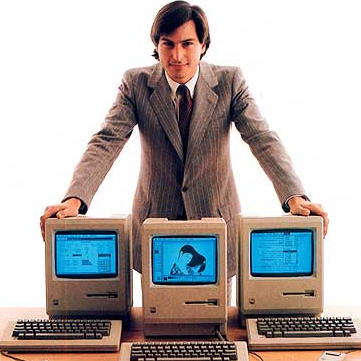
This picture appeared on the cover of MacWorld in the issue that came out on January 24, 1984. The day the Mac came out of the bag and said Hello World.
 Steve Jobs as Frank Lloyd Wright
Steve Jobs as Frank Lloyd Wright 
In 1983, my little software company was lucky to be invited to work on Apple's new computer in development, the Macintosh. Back then Apple wasn't as secretive as it is today. Everyone knew something was coming. We knew what it was called, but no one was saying what it was.
 I gladly signed the agreement, and to this day I remember my first glimpse of the Mac. I arrived at a building on Bandley Drive in Cupertino some time in August 1983, and was met by Mike Boich and Guy Kawasaki from the Mac team. As we walked to the conference room, I saw, out of the corner of my eye, a beige plastic box that was small and upright. And personal. How it said that to me, in just a glimpse, I have no idea. Is that a computer? Another thought popped into my head: It said "I'm new." And that was something because back in those days everything was new. And it was personal, for me. All this from a fraction of a second look.
I gladly signed the agreement, and to this day I remember my first glimpse of the Mac. I arrived at a building on Bandley Drive in Cupertino some time in August 1983, and was met by Mike Boich and Guy Kawasaki from the Mac team. As we walked to the conference room, I saw, out of the corner of my eye, a beige plastic box that was small and upright. And personal. How it said that to me, in just a glimpse, I have no idea. Is that a computer? Another thought popped into my head: It said "I'm new." And that was something because back in those days everything was new. And it was personal, for me. All this from a fraction of a second look.
Before that I had been an Apple II developer for a number of years, and was a devotee of Apple's products, though I also loved IBM's PC. There was a sense that we were all creating a new world, we all loved our work -- and Jobs and the people he nurtured at Apple, were leaders. I was on stage during the rollout of the Mac at Flint Center on January 24, 1984. We shipped our product later that year and went on to have one of the first hits for the Mac.
But I want to tell a different story. Not a personal one, because I did not have a personal relationship with Steve Jobs. However, I built products that made it to market through his platforms. And in doing so, my vision was shaped by his. And later, with podcasting and RSS, I got to influence the direction of his products.
I wish Jobs had been a blogger, had written about his design process, so I could quote something. But he was the opposite of a blogger. Jobs was a mass communicator. No one in my generation has mastered the art as Jobs did. Today, with the outpouring of feeling on the net, are people mourning the man, or the phenomena he could unleash, just by saying "One more thing."
And he was a designer, even though people seem to be overlooking that in their remembrances, calling him more of a visionary. He got down in there and made small but very important design decisions about his products. Ones that had wide impact, for better, or worse. And often they weren't things his products did, rather things his products didn't do that defined them.
The Mac was full of them. No cursor keys, so you had to use the mouse to navigate. I doubt if money was the reason, though leaving out the cursor keys probably saved a bit, and allowed the other keys to be bigger. It also meant Apple had to design its own keyboard, because they all had cursor keys.
No hard drive. No expansion slots. No fan.
A standardized user interface. This was very controversial with software developers such as myself. We felt what we did was user interface design. What would we do if the UI was already designed. New ideas sometimes don't get accepted right away by everyone. ![]()
And there were the almost-great ideas, like having networking built into every Mac starting with the Mac Plus. At the time networking wasn't even an option on IBM PCs. The networking, while a bold and great idea, didn't have the impact it should have had because the programming APIs were impossibly difficult. Had they been easy the Mac would have been the web, and we could have saved 20 years of incremental upgrades to turn the web into what the Mac was in 1984.
And at times Steve forgot where his ideas came from, or seemed to. He tormented Bill Gates, probably in jest, that he was stealing his ideas from Apple, when they both stole from Xerox.
I had some personal interactions with Jobs, but they weren't very special. I doubt if he knew who I was. He called me once, out of the blue -- to rant about the stupidity of people at Apple. This was in 1997 just after coming back. Even today, after all these years, I have a hard time saying I agreed with him, and I didn't say so in the conversation, I just stayed silent. He doesn't suffer fools quietly, that's for sure. Ooops, he didn't. Hard to think of him in the past tense. Why did he call me then? I have no clue.
In the first rush of memorials, people are comparing Jobs to Henry Ford (industrialist), Thomas Edison (inventor) or Walt Disney (media). But there's also a lot of Frank Lloyd Wright in there. All these men had imperfections, and greatness. But Wright's were, imho, more Jobsian than the others.
"He's so wonderfully prickly and famous for bursting into any house he built un-announced - just come in with a troop of people and show them the house, rearrange the furniture. He would even sneak into the houses to rearrange the furniture when the owners were away," T.C. Boyle wrote of FLW, but it also describes how early Mac developers felt after demoing their products for Steve.
To both Jobs and Wright the people who used their products were not as important as the computer or the building. More than the thing itself, what mattered to Wright, and I think what mattered to Jobs is the integrity of his vision. In a way it was a shame that the vision had to be instantiated.
Of course that's what made their ideas so great and influential. Among the many Jobs quotes worth remembering, and quoting -- Artists ship. I agree. And when you ship, along with the vision, comes reality. And then you learn and ship again.
There might still be Jobs shipments to come. We don't know what's in Apple's pipeline. But his thinking and vision, his person, will influence others and drive them to greatness, for generations to come.
 Back to the normal ride
Back to the normal ride 
Windy! Whoooo.
Strong headwind uptown, beautiful cruising tail wind coming home.
75 degrees and bright sunny day.
Map: 1 hour 4 minutes. 11.59 miles.
 Occupying Facebook
Occupying Facebook 
Yesterday I was given a list of Occupy sites on Daily Kos, about 200 of them. Most were Facebook sites, there were a handful of blogs with feeds.
Of course without feeds they can't be part of occupyweb.org. But that's okay, because occupying Facebook is every bit as good as occupying Wall Street. Seriously. And because of what's happening on Facebook, the show is going to move out to the web.
Read this article about where Facebook thinks they're heading. And then try to imagine the conversations they're having with advertisers. How long before there's an Occupy for individual brands. And do they really want to compete with the occupiers on Facebook. Who are they kidding. People are going to find what the brands have to say very easy to ridicule. Basically I can't imagine they will do anything but cede the space to protestors.
 There you have the coming faceoff. And it's going to be a good one. Whatever plays out won't be in Cairo or Tunisia, it'll be in New York and Silicon Valley. It'll look a lot like the faceoff on the Brooklyn Bridge. But visible to everyone in the world. This is what American democracy looks like. It's always been class warfare, but now the formerly disarmed class has a way of organizing.
There you have the coming faceoff. And it's going to be a good one. Whatever plays out won't be in Cairo or Tunisia, it'll be in New York and Silicon Valley. It'll look a lot like the faceoff on the Brooklyn Bridge. But visible to everyone in the world. This is what American democracy looks like. It's always been class warfare, but now the formerly disarmed class has a way of organizing.
But everybody, be sure you have a good backup plan. Where will you congregate on the web if you lose your Facebook presence? Really, seriously be thinking about that.
At the DNC in Chicago in 1968, the protesters chanted "The whole world's watching." This time in a whole new way.
 A river for the Occupy movement
A river for the Occupy movement 
When a new phenomenon shows up, like Wikileaks or OccupyWallSt, or the web itself, my immediate impulse is to try to get my arms around it. To get enough input flowing into my brain so I get a feel for the story.
Following a hashtag on Twitter is useful, but it isn't what I'm seeking. CNN or MSNBC is a substitute for it, but they aren't really covering this stuff, and aside from that, I know that they are giving me a superficial story. I want something less processed, with less MSM judgment. Something more raw.
What I'm looking for, of course, is a river. So yesterday I took a look around to see how many of the Occupy sites had feeds.
My algorithm was simple. I got a list of the top cities in the United States from Wikipedia. And I typed into Google, one after another: Occupy <CityName>. And about half of them came up hits. An overwhelming majority are planning events. But it seems most of them are using Facebook to plan the events. Since Facebook doesn't reliably produce feeds for its groups (if they do I don't know how to find them) I can only use blogs. And I don't really want to go into Facebook, since I feel strongly that it's as much a part of the problem as the culture of Wall Street. I want to produce a "green" river. ![]()
Anyway -- it's here! Flowing slowly, but there are stories there. I hope that by spreading the news it will attract more readers, and thereby more new feeds, and more news in the feeds we already have.
And of course the OPML reading list for this river is publicly available.
 Why your Occupy event should have a feed
Why your Occupy event should have a feed 
Lots of organizations that are doing Occupy events have blogs and therefore have feeds. But some are relying exclusively on Facebook, and those events can't be part of a RSS-based information flow.
It's really easy to get a feed. One comes for free with every blog. So if you have a Tumblr or Wordpress blog, or any other popular blog flavor, that's all you need. Even if you're using Facebook to communicate, it's helpful if you can broadcast the big news to the non-Facebook world by adding it to a blog that lives outside of Facebook.
Facebook is the equivalent of Wall Street in the tech world. So it's important that you communicate not just with people inside Facebook, but those outside as well.
If you have questions, feel free to post them here.
 We're looking for "Occupy" sites!
We're looking for "Occupy" sites! 
Hi! I'm Dave Winer, and I'm really in awe of what's going on around the country in the communities and also on the web. Lots of really smart people who want to be part of a great country, and actually doing something about it.
My contribution is a news site where you can follow all the updates from people who are blogging about the events, with first-hand accounts, pictures and movies.
We're also finding links to mainstream articles and adding them to the flow as well. Not just good ones, all kinds. Let's find out what people are saying.
Anyway, here's a list of the sources we have so far:
If there's a site in your community, you might want to get involved.
And if you know of a local site that we don't have in the list, please post a comment here.
Thanks! ![]()
 Occupy Silicon Valley?
Occupy Silicon Valley? 
 It's great that occupations are springing up all over the United States. But I wonder when will there be an occupation of Silicon Valley? It feels kind of weird for me to raise the question because I lived and worked in Silicon Valley for many years. I know some of the people who run the place. Lived in Woodside, Menlo Park, Palo Alto and Los Gatos. My neighbors were the power brokers of the valley. And some of them are people who I did business with, who I like as human beings, and who I think are basically just as good as any of us. However, in pursuit of more wealth, they represent every bit as much what's wrong with our economic system as any Wall Street banker.
It's great that occupations are springing up all over the United States. But I wonder when will there be an occupation of Silicon Valley? It feels kind of weird for me to raise the question because I lived and worked in Silicon Valley for many years. I know some of the people who run the place. Lived in Woodside, Menlo Park, Palo Alto and Los Gatos. My neighbors were the power brokers of the valley. And some of them are people who I did business with, who I like as human beings, and who I think are basically just as good as any of us. However, in pursuit of more wealth, they represent every bit as much what's wrong with our economic system as any Wall Street banker.
Instead of bundling parcels of mortgages and turning them into derivatives, they bundle up parcels of people and turn them into masses of users, who generate content. Then they sell access to those users for a price, to other businesses. The problem is that as growth levels off, and it's sure to do that (how many more groups of 800 million can Facebook find, and where will they have to go to find them, and who will they have to sell out to to get there) -- they're going to have to take more from those users. Zuck calls it "sharing." The rest of us call it "privacy."
Ahh so you think there is no such thing as privacy. Think again. Do you want to see every piece of porn everyone you know is looking at? That's a lot of porn, and some of it might be fairly tasteless. Live and let live we all say, until you put your life in my face. Do you want your friends (and everyone else) to know everything you buy at the grocery store? Every phone call you make? Your exact whereabouts at any moment? What power this would give to stalkers. And what fear this would cause in those who are stalked.
So while Silicon Valley is enabling an ever-more-intrusive role for networks, how about occupying a bit of Silicon Valley, as a reminder that users are people, just like they are. And that turnabout is fair play.
 Relying on Facebook, Twitter and Google
Relying on Facebook, Twitter and Google 
The NY Times has a report in today's paper about the Occupy Wall Street campaign and its spread to other cities around the country.
The second paragraph begins: "With little organization and a reliance on Facebook, Twitter and Google groups to share methods, the Occupy Wall Street campaign, as the prototype in New York is called..."
They put their finger on exactly what is troubling, from my perspective, about using corporate online media to organize political efforts to upset a supposedlly different corporate world. The assumption is that there are no connections between Wall Street and the ownership of the tech companies. This of course is not true. They are very interlocked. When Wall Street is threatened the response could easily come from one of the online networks.
Better to develop completely independent communication channels in case the Google, Facebook or Twitter ones are interrupted. Or as independent as you can possibly make it. Depending on university-hosted communication systems, for example, while certainly not foolproof, is a better bet than using the corporate systems.
Having multiple redundant channels is the best way of all. (In other words, based on the design of the Internet itself.)
Right now I don't want to be more specific because I don't want to jinx the great energy behind this movement. If I see specific signs that they are over-relying on corporate online media, I'll say more.
PS: I couldn't disagree more with this piece in the Atlantic. Just the act of occupying space in the middle of NYC is causing people to talk about things in a way they weren't before. It's the change they're creating in the rest of us that matters right now, not the ignorance of Wall St. They will be the last to hear it.
 Stolen from the best
Stolen from the best 
One of my mottos is Only Steal from the Best.
It was with that in mind that I stole the design of my new story template from Readability. I figured they had invested so much in figuring out what readable meant in web writing, why not just lift the design and use it on my site?
I sent a pointer to Rich Ziade, the CEO of Arc90, the company that makes Readability, with my compliments. He said in response, "It doesn't need Readability. A good sign!" Now that's a software developer I admire. A man on a mission -- to make the web more readable.
And we're doing our small part here at Scripting News.
 New design for scripting.com
New design for scripting.com 
Yet another new look for scripting.com.
 It uses the Bootstrap toolkit for some things, but I didn't use their grid layout or the fluid two-column layout. Couldn't make the grid work, and the two-column layout had the columns arranged backwards.
It uses the Bootstrap toolkit for some things, but I didn't use their grid layout or the fluid two-column layout. Couldn't make the grid work, and the two-column layout had the columns arranged backwards.
This is a test to see how subtext looks in the new setup.
Using Google Web Fonts for the title of the home page, and for the text on the home page. The title is Fondiner Swanky (which people think of as the Rocky and Bullwinkle font) and the text on the home page is the very nice Ubuntu font. On the story pages I use Georgia.
I really like the blue text for links. That's a Bootstrap thing.
Not sure what to do with the linkblog contents. It's kind of disruptive, not in a good way, but I want to give people access to the links I publish. Still thinking about that.
As has been pointed out in the comments, it's broken in Chrome. Probably elsewhere. Oy. (I need a nap.)
 Today's ride: 35.9 miles!
Today's ride: 35.9 miles! 
I did the MS ride today. Thanks to all the sponsors. We raised $585 to fight MS.
It was a clear sunny day, with dramatic clouds. Not much wind. Chilly, in the low 50s.
The route was 12th Ave to West St, then through the tunnel under the financial district onto the FDR all the way up to the very top of Manhattan, way north of the George Washington Bridge, and down the Henry Hudson Parkway to Pier 94.
I could have gotten a badge if I wanted to give them access to my Twitter, Facebook or LinkedIn accounts, but I won't be doing that. I think we need to start saying no to that question. I gave to fight MS. Now maybe they can give to fight the BigCo takeover of the web.
Map: 3 hours 11 minutes. 35.9 miles.
 Browsers are too low-level
Browsers are too low-level 
An item for anyone who's thinking about new browsers.
Motivation: You could use a text editor in place of a spreadsheet app. But once they invented spreadsheets, why would you?
Same idea applies to browsers. When they were invented no one knew what they would be used for. So they had to be generic and relatively low-level. But now we have a very good idea of what they are used for, so we can streamline things.
 Easy things should be easy, and hard things should be possible. It should be easy to go across the Verrazano Narrows Bridge. But it should also be possible to put your car on the Staten Island Ferry if you want to roll your own trip across NY Harbor.
Easy things should be easy, and hard things should be possible. It should be easy to go across the Verrazano Narrows Bridge. But it should also be possible to put your car on the Staten Island Ferry if you want to roll your own trip across NY Harbor.
Here are some examples of things that are hard that should be easy:
1. A basic two-column layout. You should be able to say this is the left column and here's the right column. The right one is 225 pixels wide and the left column fills the remaining space. There's 28 pixels between them. And if I didn't feel like specifying the number of pixels there would be reasonable defaults.
2. A menubar with dropdown menus. The first menu has this name, and these items. When the user chooses the item named Foo from the menu named Bar go to this url.
3. Here's a crumb trail. It's got the following items in it, and for each item this is what it links to.
4. Comments go here.
5. Get the user's name and password.
The focus should be on simplicity of interface, both for the programmer and users.
 An occupywallst river
An occupywallst river 
I want to do a river for #occupywallst news.
Not just what's happening in NY, but all over the country. If corporate media isn't going to be there, and why should they, we can do a better job of news-distributing ourselves.
I already have a couple of feeds. Looking for more.
I strongly believe we have to build networks that are not on the corporate blogging silos. Quite an irony, and something that probably isn't a good idea long-term, even medium-term.
I will host the river myself, but the data will be open, as will the feed list.
 Bootstrap in Scripting News
Bootstrap in Scripting News 
Okay folks I know it looks crummy, but it's a start.
I just smooshed together Scripting2, the software I use to edit this site, with the Bootstrap toolkit. So now, all the tricks I can do in the World Outline also work here. So for example, I can give you the lyrics of a song, when I'm talking about it.
Or if I want to give extra emphasis to a motto, I can do that too.
Still diggin!
Or add a semi-sarcastic comment to something here. Self-deprecating, of course. ![]()
All this with all the usual wit, mirth and irascibility Scripting News is famous for!
PS: I promise to use these sparingly.
 Bootstrap in the WO
Bootstrap in the WO 
The World Outline is an outline that's displayed in a web browser.
 It can include other outlines, which is where the world part comes from. An inclusion is the equivalent of a link in HTML. The format of the World Outline is OPML.
It can include other outlines, which is where the world part comes from. An inclusion is the equivalent of a link in HTML. The format of the World Outline is OPML.
The user gets to edit the template for their outline, giving full control over the look of the site. I want to embrace designers in the community.
I've been using Bootstrap for my user interface work. So it made sense to connect the outline templates with Bootstrap. Giving you an easy relatively user-oriented environment for doing stuff that Bootstrap can do. Fun!
The first three little projects I did are: twipsies, labels and popovers.
Hope you like! ![]()







